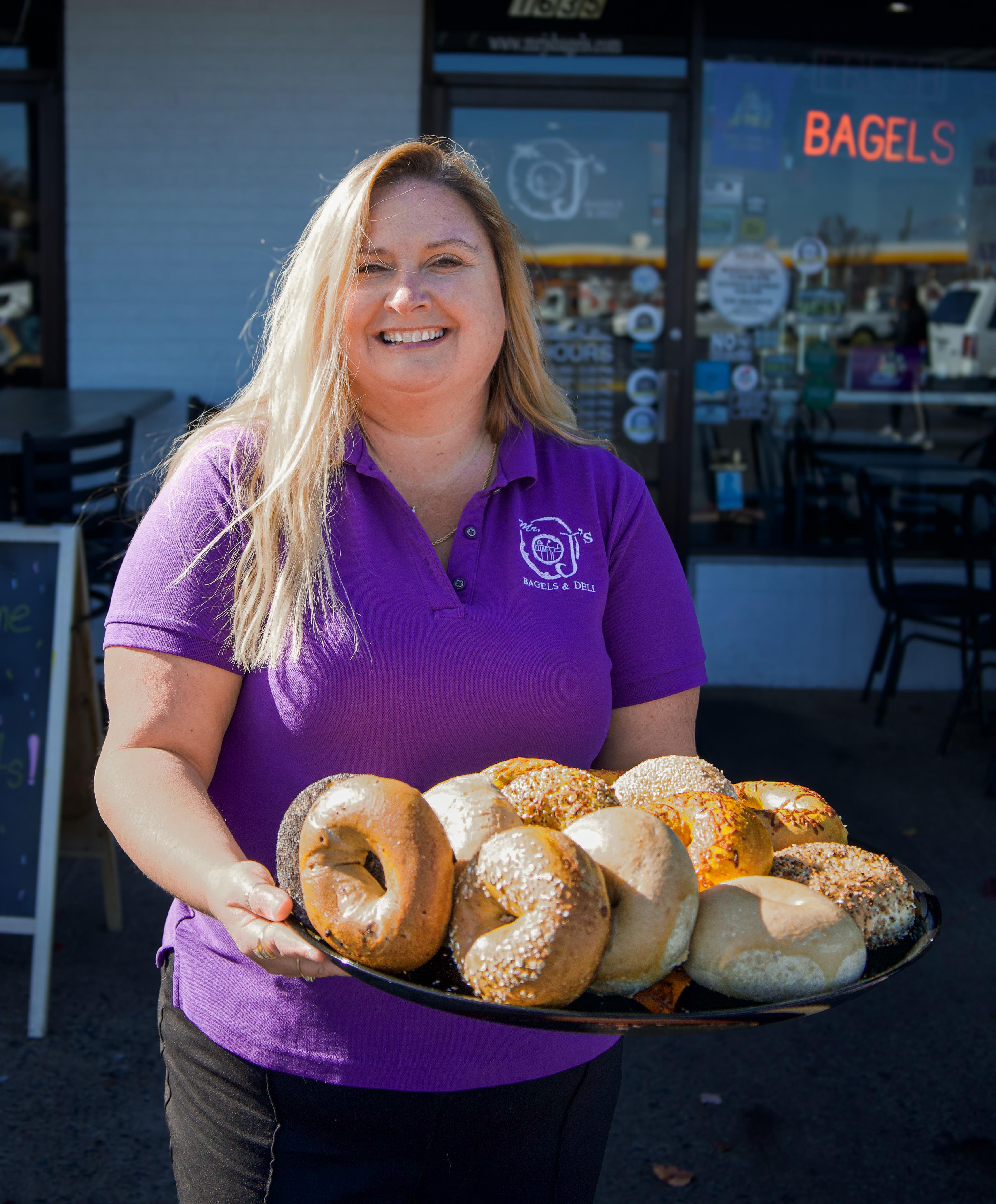


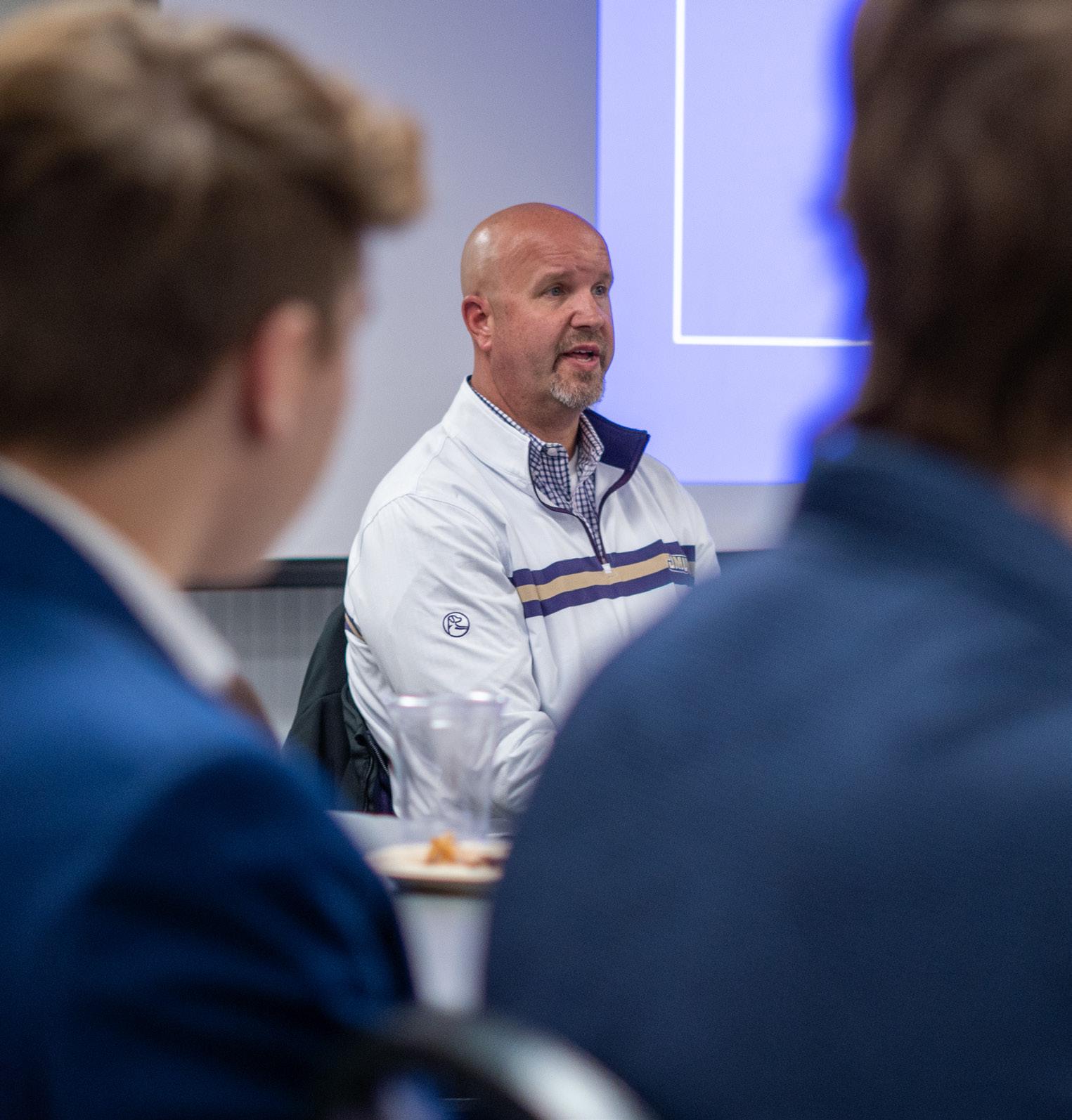



EDITORS Emma Notarnicola & Landon Shackelford EMAIL breezenews@gmail.com








EDITORS Emma Notarnicola & Landon Shackelford EMAIL breezenews@gmail.com
By SIXUAN WU The Breeze
For the past 17 years, JMU’s Research, Economic Development and Innovation (REDI) division has organized its annual fall food drive. This year, however, the event takes on a new significance — honoring the memory of Ben Delp (’05, ’08M).
A JMU employee of 20 years, Delp died on Sept. 14. Delp worked in several different positions in REDI throughout the past two decades and had served as its director of federal relations and communications since 2022. He had also been the main organizer of the divisions annual food drive.
“I think the food drive was the one main thing we had earmarked as something he had spearheaded ... something he was really passionate about, and I think says a lot about who he was as a person,” Vice President of REDI Anthony Tongen said.
Associate Vice President for Research and Economic Development Keith Holland, who has been coordinating this year’s food drive, said he’s surprised by the number of people within the department who offered to help with the event.
“It’s not me, it’s my whole team — it’s the whole team of REDI that’s really taken this on,” Holland said. “Six or seven people have jumped in on the coordination aspect.”
The food drive partners with the Blue Ridge Area Food Bank to help alleviate hunger in the region. While this year’s donations have yet to be tallied, with the drive starting on
Monday, Holland said over the past 17 years the food drive has supplied the Blue Ridge Area Food Bank with over 73,000 meals through food and monetary donations.
“In our area, there’s one in nine of our neighbors [who is] food insecure,” Holland said. “We know that that is a concern, and we know that food is a basic necessity ... We’re all in this human condition together, and that’s what was so powerful about this.”
This year’s food drive runs from Nov. 10 through 20 with donation locations on campus at EnGeo, Foundation Hall, the Health and Behavioral Studies building, Jemmy’s Corner Market in E-Hall, King Hall, Leeolou Alumni Center, Massanutten Hall, Memorial Hall, Mr. Chips, Rose Library, Sonner Hall, the Student Success Center and Taylor Hall.
In addition, Tongen said on Nov. 21, REDI will take all the donations to the Blue Ridge Area Food Bank’s western region headquarters in Verona using sustainable transportation from Virginia Clean Cities — an organization where Delp had served on its board of directors.
“This is about honoring Ben and his memory,” Tongen said. “[It’s] not typical for us to do that, and Ben never did. But at least this year, we’d like to make sure that we go a little bit above and beyond.”
Tonya Lambert Delp, Delp’s wife and the associate director of clinical services for the Institute for Innovation in Health & Human Services, said conversations about continuing the food drive to keep Delp’s legacy alive began early on after he had passed away.
“I just think it really speaks to him — he didn’t do this for him to be known as the food drive person, but it speaks to
the impact that he had on the community as well,” Lambert Delp said. “This is a way that we can continue to honor him, while also doing what was important to him, which was giving to the community.”
Holland said that seeing so many people come together to support the food drive was “a testament” — not only to the importance of sharing food with those in need, but also the lasting impact Delp has left on both JMU and the community beyond.
“People just felt a connection to him,” Holland said. “It goes back to, I think, largely because he saw every person, and he advocated for every person to be seen.”
Along with the food drive, REDI continues to commemorate Delp in other ways, such as through the Benjamin T. Delp Memorial Fund.
But for many, such as Tongen, keeping Delp’s memory alive also comes in small ways — something as simple as taking a picture every time he walks from the House of Representatives side of the Capitol to the Senate side, just like he and Delp used to do during their many trips to Washington, D.C.
“I don’t like pictures, but he would always do it, so it’s now part of my new routine in memory of him,” Tongen said. “I still don’t like pictures, but it certainly is a good memory of things we did for a long time.”
CONTACT Sixuan Wu at thebreezeweb@gmail.com. For more coverage of JMU and Harrisonburg news, follow the news desk on X @TheBreezeJMU and on Instagram @BreezeJMU.
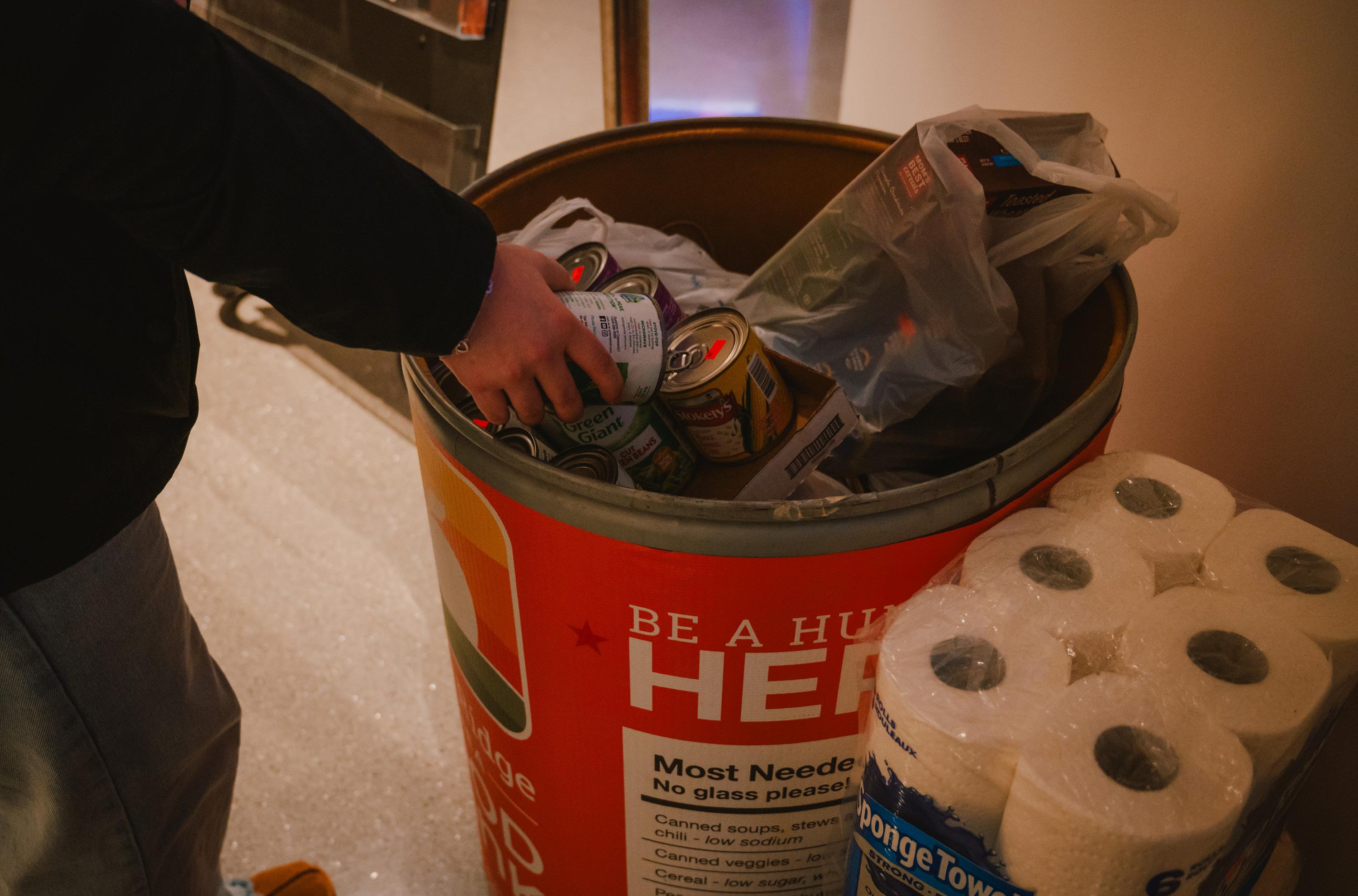
By EDISON VRANIAN
The Breeze
Zuriel Oduwole, a filmmaker and social activist nominated for the Nobel Peace Prize, spoke in the Wilson Hall auditorium on Monday to encourage the audience to become wellrounded citizens.
The rise of Oduwole’s fame
According to her website, the Los Angeles native is known for her girls’ education advocacy across the Caribbean and Africa, and major media outlets recognizing her for talking to 30 world leaders.
Oduwole began her speech by discussing her advocacy work dated back when she was 9 years old with the National History Day project with her school.
Oduwole said her options for project format was either to do an essay, a website or a documentary. Using her home camera, Oduwole said, she would make music videos and home videos with her family. With no website-building experience and a lack of interest in writing an essay, Oduwole chose to make a documentary.
The majority of the students participating in the contest chose topics on the American or the Industrial Revolutions, but she said she aspired to stand out among her peers.
After researching, Oduwole said learned about the Ghana Revolution, which was an underrepresented topic. Oduwole
said she convinced her parents to travel to Ghana to get the necessary sources.
“Zoom was not around then. So to do primary sources, I actually had to go to Ghana. That was the part that took the most convincing,” Oduwole said.
On the trip, Oduwole created a documentary highlighting her experience with the kids out on the streets selling objects during normal school hours. She said that during this trip, she reflected on her own life compared to the kids who didn’t get to go to school. After the trip, Oduwole said she started the Dream Up, Speak Up, Stand Up Project, which advocates for girls to stay in school until age 18 and not get married early. This was done to help the area she had traveled to for her documentary.
Initially, Oduwole’s activism career started with telling students to stay in school in hopes of increased opportunities.
“It began with me just speaking in schools, talking to students about the importance of staying in school, and getting a good education, so that way, as they got older, they would have more opportunities in their life,” Oduwole said.
However, Oduwole said, as she continued working, she noticed other factors kept the students out of school, such as child marriage.
“I started to sit and meet with heads of state to discuss policies to make it easier for kids in their countries to go to school and get a good education,” Oduwole said.
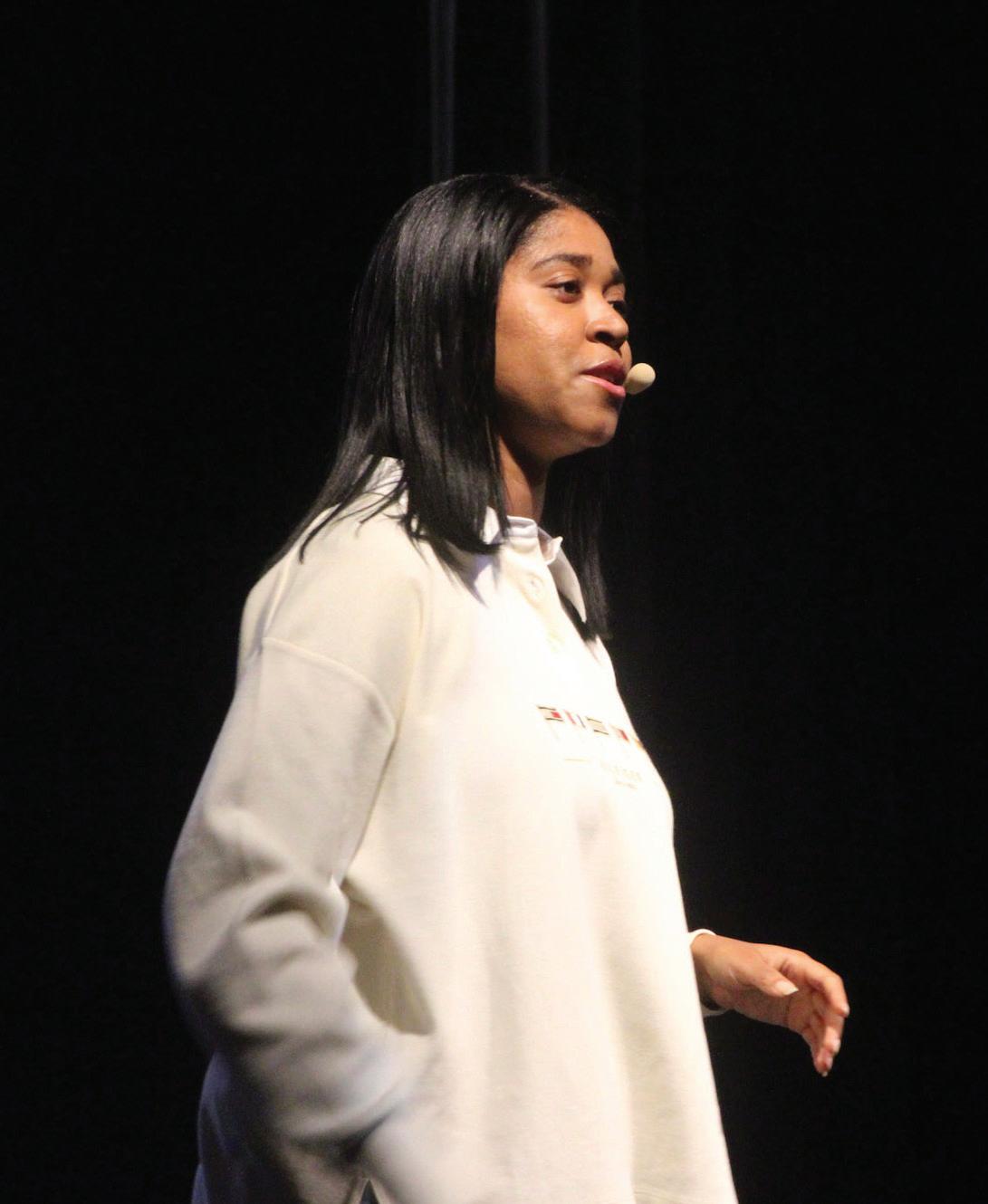
Oduwole said she talked to 36 presidents and prime ministers of countries including Egypt, Ghana, Fiji and Croatia. She also said she spoke with 58,600 youths in 23 countries.
Oduwole reached many milestones along the way, according to her website, including being featured by many media outlets and speaking at the United Nations on climate change and its impacts on education before speaking to JMU students at Wilson Hall. Her most recent achievement is being nominated for the 2025 Nobel Peace Prize for her work in these countries and for encouraging education, according to the Daily Bruin.
During her speech, Oduwole said she wanted the audience to remember five key points to become a well-rounded citizen: represent yourself well, think outside borders, encourage kindness, strive for excellence and remember to speak up.
For the first point, Oduwole said that wherever you go, you’re always representing yourself, and so, you should always try to do so well.
Oduwole’s second point was to “think beyond borders” or think outside of the normal confines of everyday life. She said she encouraged students to think globally rather than solely thinking about current issues.
“I began to shift my mindset and believe that I can no longer just think locally, especially now when I know there are so many different problems and challenges all around the world,” Oduwole said.
In her third point — encouraging kindness — Oduwole asked the audience, “If you could have any superpower, what superpower would it be?”
Some answers from the audience included teleportation, super speed and the ability to speak any language, but Oduwole said kindness is a superpower that gets overlooked, but its simplicity can make a difference.
“I think kindness is an underrated superpower because in its simplest form, it literally has the ability to change lives,” Oduwole said. With that, Oduwole challenges students to be kind every day.
For her fourth point, “excellence transcends,” Oduwole said, people will come to you when there’s something you’re good at, so pursue what you love and try to excel in that field.
“No matter what you look like, no matter what you wear, where you come from, if you find something and you excel at it and you make it yours, then people will come looking for you,” Oduwole said.
Finally, Oduwole delivered her last point by encouraging the audience to use their voices to speak up against problems they see. She recounted her own activism story, adding that when she started at age 10, she was nervous to talk to even a room of 30 people.
“Over the years, that room of 30 people grew to 100 people, then to 1,000 people, then 16,000, then 80,000 people. And along the way, I realized that you have to start somewhere,” Oduwole said.
Sophomore education major Sabina Wright said she appreciated hearing Oduwole’s talk because topics involving education aren’t discussed frequently.
One of the points Wright took away from Oduwole’s talk is to “strive to be kind,” adding she plans to think more kindly, since it can make an impact on others.
“I need to think more optimistically, whether it be about myself or others and hearing about how big of an impact it can make on other people,” Wright said.
With Wright’s aspirations of becoming a teacher, she hopes to bring that same kindness to her classroom.
“The whole kindness point, that really stood out to me,” Wright said. ”I definitely want to incorporate that within the classroom. I want to make sure that’s a top priority, that everyone within my classroom knows that it’s always a positive and optimistic environment.”
Freshman Isabelle Norris said Oduwole’s point on kindness reminded her about her mom teaching her to be kind because one never knows what someone else is going through.
Norris said she was inspired by Oduwole’s impact on the world, especially since she’s only 23 years old.
“I was like, ‘wow, you’re only 23, and you’re already so far into your career, and you’re, so far, making impacts on the world,’” Norris said, “It was just really inspiring to see somebody young able to do that.”
CONTACT Edison Vranian at vraniawe@dukes.jmu.edu. For more coverage of JMU and Harrisonburg news, follow the news desk on X @TheBreezeJMU and on Instagram @BreezeJMU.
By LANDON SHACKELFORD
The Breeze
The Interfaith Chapel, previously located in Taylor Hall, is now relocated to the top floor of the other Union building, Warren Hall — however, it looks very different from its original location.
The shared space for all faiths now includes three rooms, two of which are divided by religion and require JACard access.
“It’s a revamp of the religious life program on campus,” senior Halle Schwartzman said. “I wouldn’t even say that there is a quote-unquote interfaith chapel anymore; it’s more like there’s a space for the Muslim students, [the] Jewish students and an interfaith space, which is really just for the Christian groups.”
Schwartzman has been working with administrators such as Vice President for Student Affairs Tim Miller since her freshman year to make this space a reality.
“The project has been three to four years in the making,” said DaNae Peterson, executive assistant to the associate vice president of Student Development and Community Building, who oversees the redesign of the Interfaith Chapel.
Peterson said the main reason behind the chapel’s revamp is that the old location was difficult to find. She added that she didn’t know what department, if any at all, oversaw the previous Interfaith Chapel.
“It wasn’t really a space that you knew where it was; it was hidden. It was small with chairs in there and little places to pray,” Peterson said. “It was a mysterious place on campus. Orgs couldn’t use it and it was not well advertised.”
Around a year ago, Peterson and other student development and community building advisers decided to make a new space called the Spiritual Life Space.
“When they tore down Madison’s Grill, it was vacant upstairs, and so conversations were happening among senior leadership about what we could do with that space,” Peterson said. “T here was a push for a spiritual life center for
students to pray and feel like they didn’t have to go to a hidden bathroom to do it.”
JMU has 17 religious organizations listed under its Faith and Spirituality webpage for International Student and Scholar Services. Out of these organizations, three are for Jewish students, one is for Muslim students and 13 are for Christian students. But until now, Peterson said there wasn’t a central place for students from different backgrounds to gather or feel “supported.”
The new Spiritual Life Space includes three rooms. The largest room, Warren 516, is open to all,” Peterson said.
“If you want to pray, take a nap or write, you can go up there and use it from 8 a.m. to 3 p.m.”
After 3 p.m., the room is available for religious organizations on campus to host events on a first come, first serve scheduling basis.
There are also two separate smaller rooms that require JACard access to use. These rooms offer religious ritual items for certain faiths, such as a footwashing station and religious texts.
“We recognize that there are students who have special [religious] needs,” Peterson said. “So just like in D-Hall where you have that hub that only people that have allergies go into, we have that too.”
To get access to the rooms, students must first scan a QR code on the door to fill out a form. The form asks multiple questions, and it asks users to explain why they need the room for religious purposes and to agree to use it peacefully. Once the request has been submitted, Peterson and others will grant access based on the form’s response.
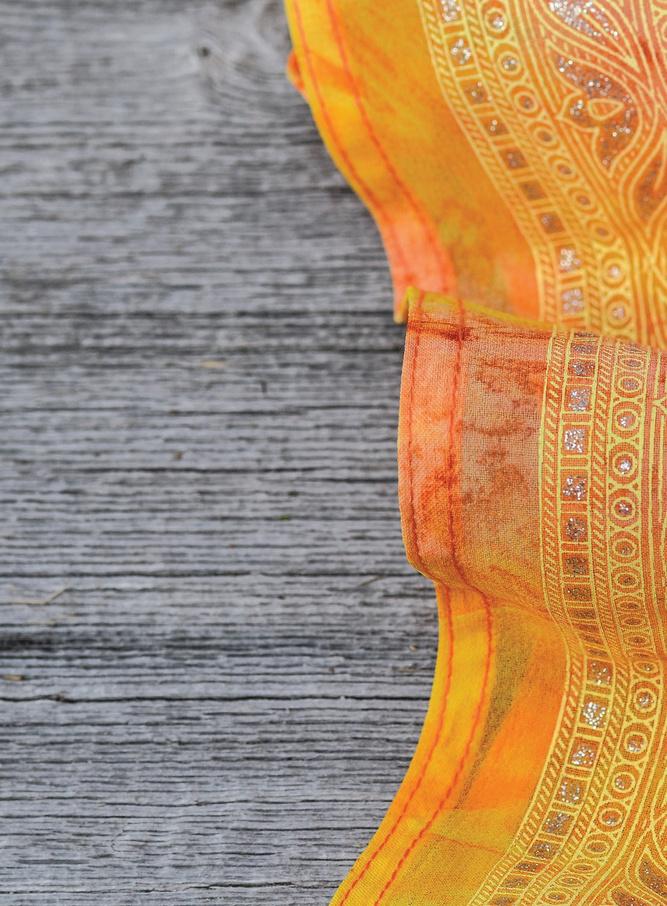
Although anyone can use either of the rooms, one space has a printed sign that reads “Jewish Room,” and the other has one that reads “Muslim Room,” for which there’s an additional “Muslim women” entrance and a “Muslim men” entrance.

Schwartzman said the JACard-access rooms are “safe spaces on campus” for students to hang out between classes or just be with each other. She added that most college campuses have a Hillel or Chabad, which are Jewish community centers, on campus, and JMU has only one off campus.
“It’s still very new,” Peterson said. “There are spaces for feedback in all three spaces. I’m even planning to have a student advisory board to work with religious groups and see what they need.”
Read more online at Breezejmu.org
CONTACT Landon Shackelford at breezenews@gmail.com. For more coverage of JMU and Harrisonburg news, follow the news desk on X @TheBreezeJMU and on Instagram @BreezeJMU.
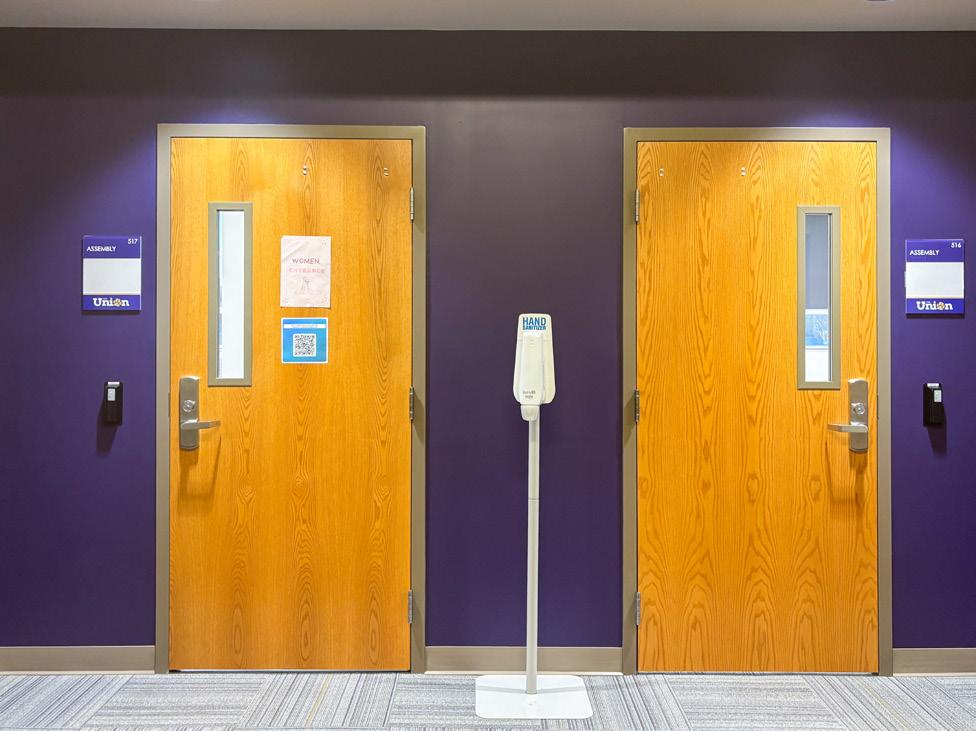
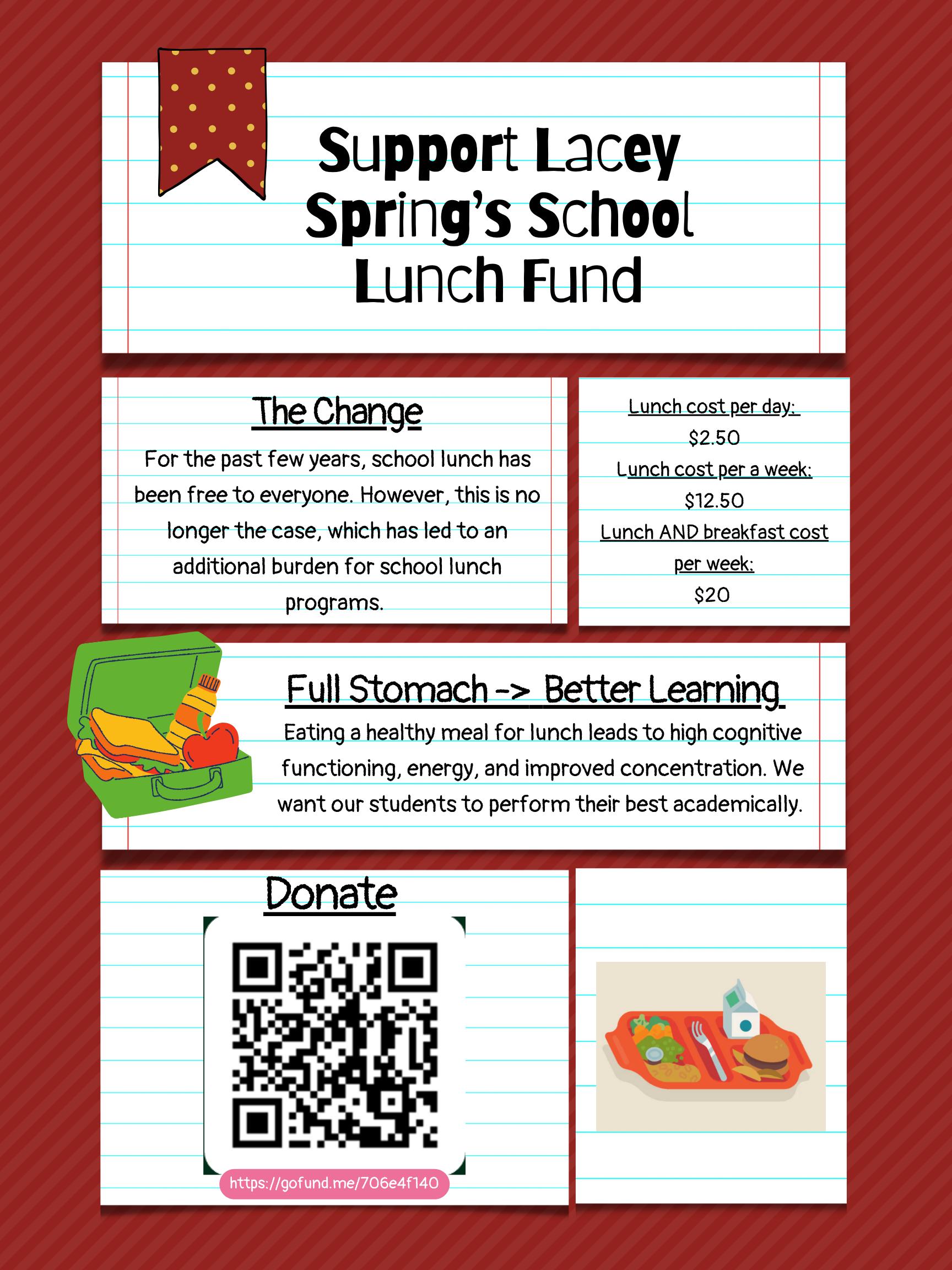
By EMMA NOTARNICOLA
The Breeze
In the week following the election, Dukes have been reflecting on the results and celebrating the record turnout of student voters as the 2025 election season comes to a close.
As blue overtook Virginia’s executive branch — with Abigail Spanberger, Ghazala Hashmi and Jay Jones all winning their respective seats — Dukes reacted to this news in different ways.
Some students, like senior international affairs major Sydney Forren, were excited by the results and hopeful about a future with Spanberger as governor.
“I think it’s really good for Virginia that Abigail Spanberger won, and I’m really excited about the changes that she’s gonna make,” Forren said.
Freshman international affairs major Kesley Evirs said she hopes to see a reduction in cost of living expenses under Spanberger’s administration, especially regarding the cost of tuition and housing.
“I thought the governor’s race was one of the most important ones, and I definitely think it was a very deciding race for what Virginia is going to look like,” she said.
On the other side, conservative students, such as College Republicans member Reagan Polarek, were less excited about the results.
“Everyone ran a great race, and I’m definitely disappointed,” Polarek said. “I feel like the current administration has steered Virginia in a really good direction … but I really hope that everyone can band together and support our new leadership and keep Virginia the best place to work, live and raise a family.”
Although there are students on both sides of the aisle, some Dukes, like freshman finance major Alexander Rai, didn’t hold a large stake in the election, especially with the candidates running this year.
“I guess, for some people, they probably have stronger beliefs on certain subjects, and if they have those, then it’s obviously important to vote,” Rai said. “But this election … I just didn’t really relate to [the candidates] that well.”
The transition to a Democratic state executive branch marks a milestone in Virginia’s history with Spanberger becoming the first female governor, senior President of College Democrats Maddie DuBois said.
“I was excited,” DuBois said. “To see a woman as the governor is so refreshing and so exciting, and I’m glad that I get to be a part of that for either side but especially for the Democrats, that’s who I wanted to win.”
Polarek said she, too, was excited about the first female governor, adding that Spanberger plans to maintain the bipartisanship she held while in Congress and to protect young girls.
“I hope that she will continue to stand up for women and girls as being the first female governor of Virginia, especially with safety … specifically regarding sports and bathroom policies,” Polarek said.
This change in administration will also affect JMU, since the governor appoints members to the university’s representing body, the Board of Visitors, which makes decisions regarding tuition, allocation of funds and other aspects within the university that will align with the state’s administration.
With incumbent Republican Tony Wilt maintaining his seat as the 34th District representative in the Virginia House of Delegates, Dukes hope he will continue to advocate for JMU.
Evirs said that, even though she didn’t specifically support Wilt’s campaign, she believes Wilt will represent all parts of the district and advocate for it within Virginia.
DuBois said she’s disappointed with the results of this election and strongly believed that Democratic candidate Andrew Payton was the better choice, especially because of the commitment he showed during his several visits to JMU during his campaign.
“Andrew is for the people … he will get the job done,” she said. “[Wilt] doesn’t really seem like he cares to get to know people. He’s comfortable in his position.”
DuBois added that this is the closest Wilt has come to losing the seat and encouraged Wilt to take it as a “wake up call” that the constituents aren’t happy with their current representation.

“It’s time to get a new face out there, a refreshing face,” DuBois said. “I mean, on either side. I would have loved to see another Republican candidate come up and try … we need new faces, new ideas and I need better support for Harrisonburg.”
Read more online at breezejmu.org
CONTACT Emma Notarnicola at breezenews@gmail.com. For more coverage of JMU and Harrisonburg news, follow the news desk on X @TheBreezeJMU and on Instagram @BreezeJMU.



By SAM WRIGHT
The Breeze
The Student Government Association (SGA) heard from a panel of seven JMU faculty and staff representatives who answered a range of questions about JMU Dining’s next steps, the university’s future development and inclusivity.
Dining Services Culinary Director Seth Kondor and Dining Services Marketing Manager Heather Holsinger spoke on the panel representing JMU Dining.
The first question attendees asked was about the future expansion of JMU Dining Services now that the Festival Food Court has reopened.
“We’re in the planning phases for a revamp of E-Hall, looking at offering stations, trying to create more of a dining space to allow more students to come in that area,” Kondor said.
One student present at the town hall shared her experiences with cross-contamination of allergens in the dining halls, asking what JMU dining could do for people with extreme dietary restrictions.
Holsinger said students with severe allergies should talk with JMU’s registered dietician to create a plan for them to eat safely on campus. Other programs available to students with allergies are chef-made dinners and swipe-only access to a location guaranteed to be gluten-free, Holsinger added.
The next question asked how JMU plans to advocate for school funding and what actions the finance department should take to increase funding.
Vice President of Administration and Finance Towana Moore answered, explaining that members of her office spend a lot of time in Richmond advocating for JMU funding to the Virginia General Assembly.
The funding process is difficult, as federal money is referred to as “education and general, or E&G money,” Moore said. E&G money can only be used for educational buildings, such as classroom buildings and libraries. Money for what JMU
especially wants to fund — such as renovating Johnston Hall, creating a sister building for the health and behavior studies program or renovating Bridgeforth Stadium — is considered auxiliary and would need to be funded by JMU directly.
Moore also encouraged students, especially those in the SGA, to advocate for increased fundraising if they feel passionately about it.
“They would much rather hear from y’all. They enjoy it, and they get a lot out of it,” Moore said.
Moore and Vice President for Student Affairs Tim Miller both spoke about the power students have, not only to advocate and fundraise for the university, but to effect positive change.
To adapt to these new policies regarding what the university can do — especially with inclusion — JMU rewrote student organization policies to give them greater freedom to establish diversity-focused mechanisms.
“You all are empowered to make change and foster inclusion and difference on this particular campus,” Allen said.
Read more online at breezejmu.org
CONTACT Sam Wright at wrigh4sx@dukes.jmu.edu. For more coverage of JMU and Harrisonburg news, follow the news desk on X @TheBreezeJMU and on Instagram @BreezeJMU.
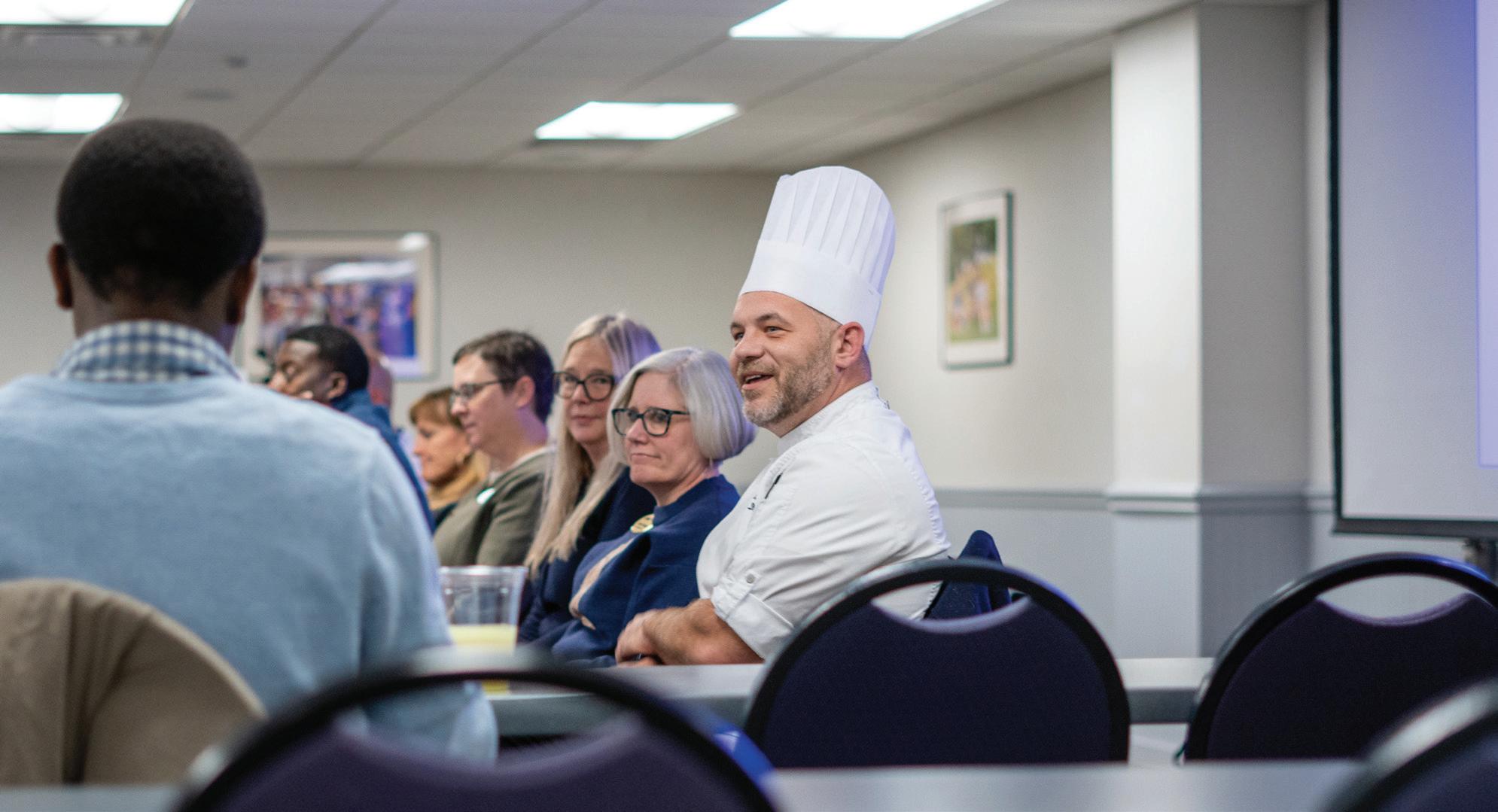





c h a n e l l o s p i z z a . c o m
c h a n e l l o s p i z z a . c o m 5 4 0 - 5 7 4 - 4 7 0 0 5 4 0 - 5 7 4 - 4 7 0 0


20% 20% O F F O F F E N T I R E
R D E R E N T I R E
R D E R
EDITORS EMAIL
Isabel Lewis & Charlie Bodenstein thebreezeculture@gmail.com
By SIXUAN WU
The Breeze
When Angela Dean first arrived in Harrisonburg as a 22-year-old with a fresh business management degree, she couldn’t have imagined becoming the owner of the beloved local chain Mr. J’s Bagels & Deli.
Now, more than 20 years later, Dean operates and manages four retail locations across the Shenandoah Valley, selling thousands of bagels each day.
Dean began as manager for Mr. J’s East Market Street location, working under the business’ founders, brothers Joey and David Jerlinski. As she moved to higher positions within the company, the brothers began talking to her about finding a successor after they retire. Then, in 2020, Dean purchased Mr. J’s and became its official new owner.
“My goal was always to own my business of some caliber,” Dean said. “I know I didn’t want to go into a situation where I knew as much as I did and still wanted to work under someone else, so … I kind of knew that that’s what I was working toward.”
Taking over a business comes with challenges, and one of the first hardships Dean encountered as the owner was being thrust into the midst of the COVID-19 pandemic. She described it as a time that required “quick thinking,” relying on online food delivery and carryouts to make up for the loss of in-store dining revenues.
“That’s when we got our new system [where] online ordering took off, so it definitely changed the dynamic as far as how people ordered,” Dean said. “Thankfully, people still came in, so we came out the other side.”
Through retails, wholesales and partnerships, Mr. J’s has become a prominent business presence in the Shenandoah Valley. In addition to partnering with local food vendors, Mr. J’s also provides wholesales to the University of Virginia, Bridgewater College and Hotel Madison, Dean said, adding that the business has also partnered with JMU for 22 years to supply the bagels in D-Hall, E-Hall and Market 64.
The business has grown through several ventures under Dean’s leadership, including a fourth location opening in Elkton in 2023, in addition to the three Harrisonburg locations.
But the biggest growth, Mr. J’s District Manager Amber Lindsay said, is the increasing social media presence and updating the menu to current trends, such as the growing interest in plant-based food options.
Yet, at the same time, Dean has preserved the small-town, close-knit vibe of Mr. J’s that the founding brothers aimed for when they started the business.
“The business is very family-orientated, so it’s kind of just like working for a whole big family,” said Brianna Hughes, Dean’s daughter and general manager of Mr. J’s Elkton location. “Every new employee we get just becomes part of that family.”
Co-workers describe Dean as kind, bubbly and “very much a cheerleader,” while also being knowledgeable and professional.
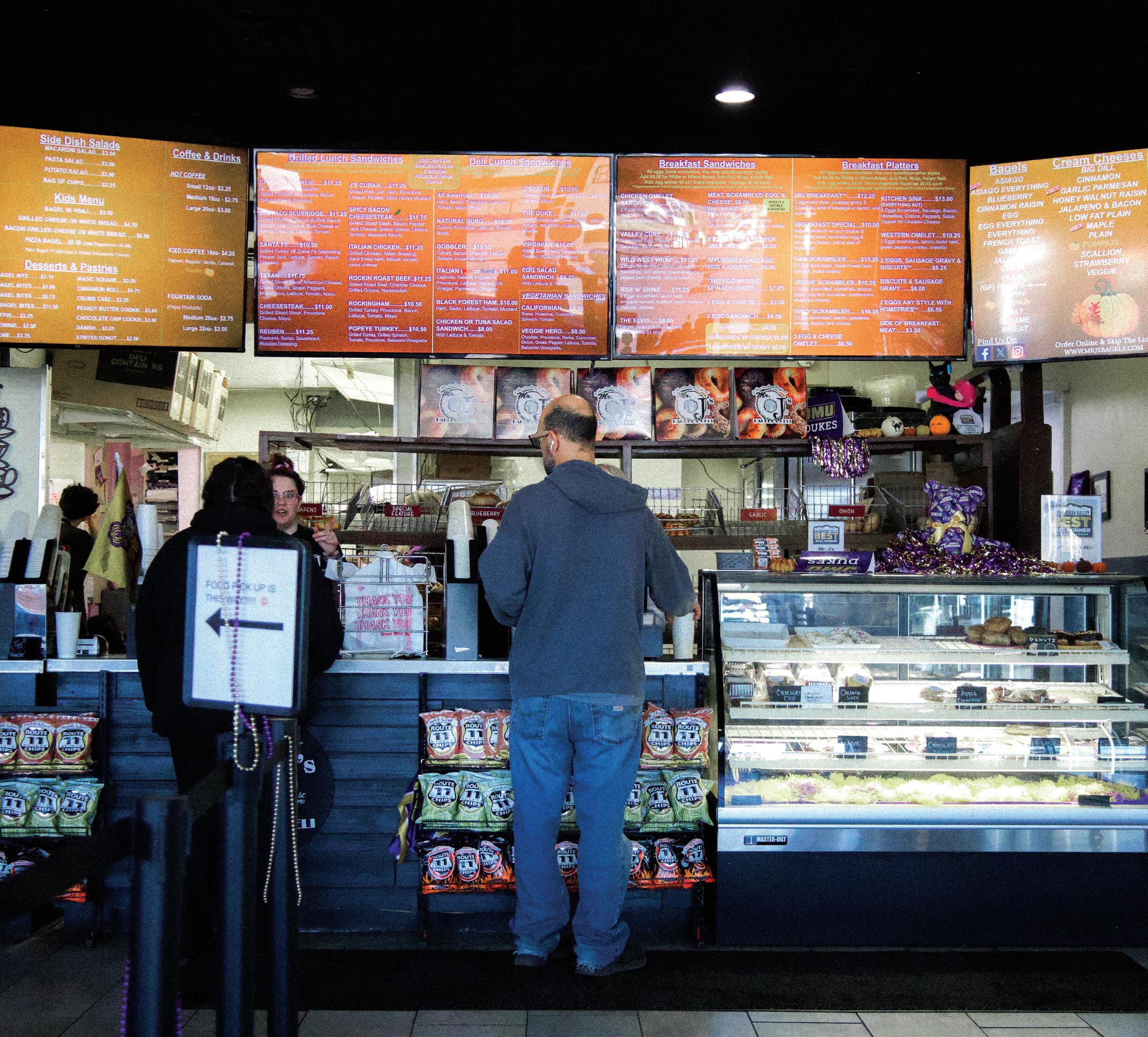
“This job can be very stressful, and you don’t smell fear on her,” Lindsay said. “You see her sweat when it’s hot from being on the grill and things like that, but you don’t see her sweat.”
Lindsay also noted Dean’s attention and care toward her employees — a quality not often seen in business owners.
“She knows her employees’ names across the board; she even knows their kids’ names,” Lindsay said. “She’s not your average owner. She’s a nice, glittery sparkle bubble of an owner.”
On busy weekends, Dean can often be seen helping out at one of the four Mr. J’s locations, either at the counter or manning the grill with her flour-dusted apron and a wide smile.
She said one of her favorite things about her job is interacting with the customers recounting how she “literally fed all of Harrisonburg” during College GameDay’s visit to JMU on Nov. 20, 2023, while wearing
purple and gold and chanting the “J-M-U Duuukes” cheer with customers.
“It was one of those senses of accomplishment, like, you could choose to go anywhere else. They all chose to come to Mr. J’s, so it was just cool,” Dean said.
With that mindset, Dean said she plans to have Mr. J’s participate in more community events, such as fundraisers and donations for schools.
On Oct. 22, for example, the business introduced pink ribbon-shaped strawberry bagel knots for breast cancer awareness month.
“Trying to be a part of the community and give back to the community, that’s important to me,” Dean said. “Not just be, ‘Oh, it’s just a local business.’ No, I want to be a local business that’s involved.”
With the position offering a mixture of management, creativity and community engagement, Dean said she found the fun, creative job she has always wanted.
“I can constantly come up with different
weird things,” she said. “I can use bagels and bagel flavors as my creativity palette, things like that, that’s fun to me. And I’m like, ‘You know, what else would I do?’”
In the future, Dean said she hopes to broaden the business both by expanding its menu and by opening more locations — including a food truck, which she said will open in the upcoming weeks, so she can travel and bring Mr. J’s to more places around town.
“We would talk about the nights that you lie awake in bed, staring at the ceiling fan, thinking of different ideas and stuff like that — she absolutely [does that,]” Lindsay said. “She eats, sleeps and dreams bagels.”
CONTACT Sixuan Wu at thebreezeweb@ gmail.com. For more on the culture, arts and lifestyle of the JMU and Harrisonburg communities, follow the culture desk on X @TheBreezeJMU and on Instagram @ BreezeJMU.
By EMMA BROWN The Breeze
According to the Mines Advisory Group (MAG), landmines kill an average of 15 people per day, and almost half of these victims are often children. Now, Dukes are working to encourage efforts to locate and destroy landmines.
MAG executive director Shari Bryan and representative Dave Bloom gave a presentation on Nov. 10 in Miller Hall to raise awareness about these invisible, deadly weapons. The presenters were introduced by political science professor Ken
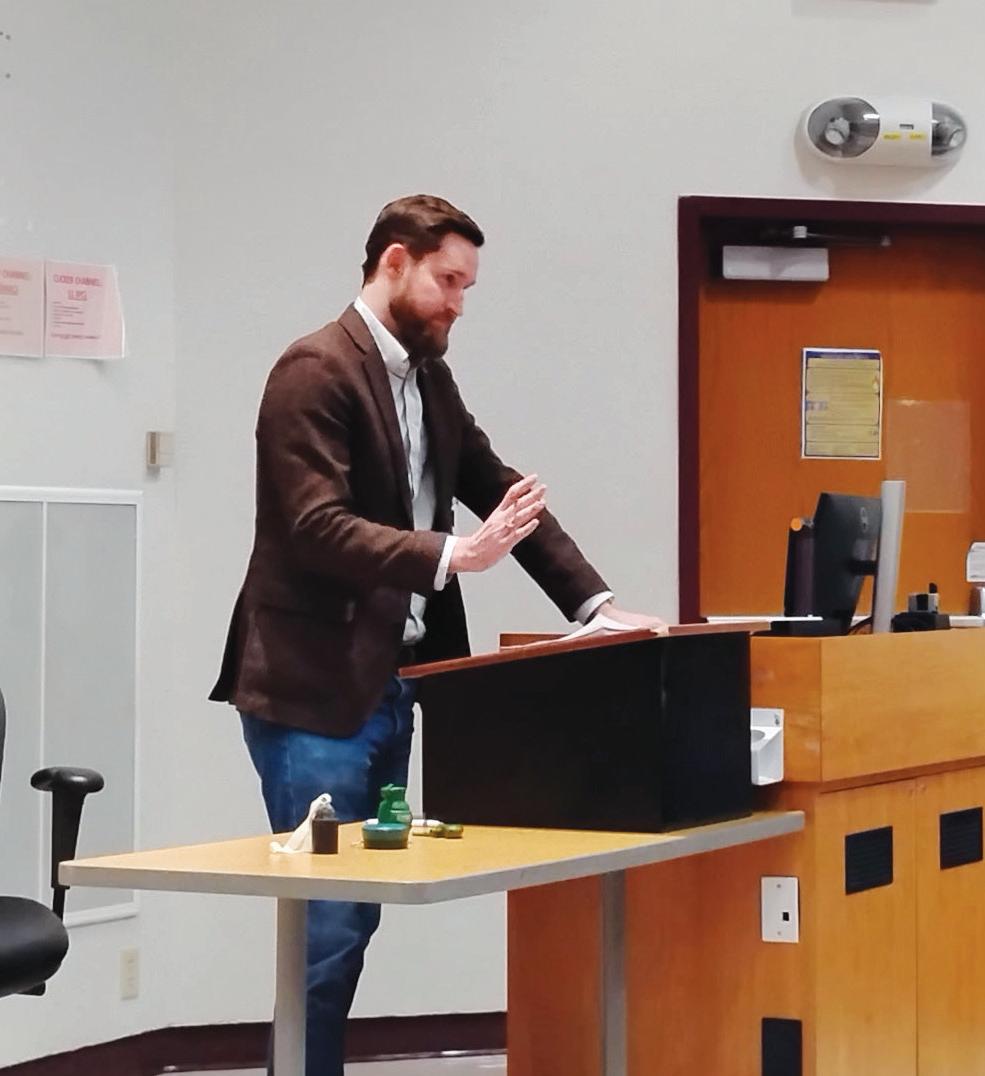
Rutherford — who lost both his legs after coming into contact with landmines — and Christina Kilby, a religion professor and director of the Center for International Stabilization and Recovery (CISR).
CISR is a center that was established at JMU to provide research and publication support for the U.S. government’s humanitarian de-mining global efforts, and it’s an excellent resource for students to get involved, Kilby said.
“We are a special niche here at JMU, where faculty and students can apply their research or their time to working on humanitarian issues around the world,” Kilby said.
Kilby said CISR is working to contribute toward conversations at JMU and at the national level about global responsibility, such as how countries can take responsibility for the remnants of war when those conflicts end.
“We’re excited to see where our projects go next to help us contribute to those conversations and some practical solutions,” Kilby said.
To get involved in CISR, students can connect with Kilby or visit the website. They can also attend CISR events during Global Humanitarian Week, which is held in the spring.
Bryan said foreign aid is a crucial part of financing de-mining efforts, although she understands why the issue is controversial.
“We have a lot of priorities that are in need of our taxpayers’ dollars,” Bryan said. “So, I think it’s very legitimate that Americans should question, or at least ask the question, ‘why are we helping foreign countries when we need to put money here in the U.S.?’”
However, Bryan said the United States should continue to invest in humanitarian system assistance to save lives and prevent people from being killed by landmines. Humanitarian system assistance has additional benefits, Bryan said, outside of the obvious.
“It strengthens our national security, America’s national security, and it strengthens our global leadership, our role in the
world as the greatest democracy in the world, and it underscores our democratic values,” Bryan said.
Bryan said many Americans agree with implementing de-mining efforts, and there has been bipartisan support in Congress for over 20 years to support this budget.
“For more than 30 years, the U.S. has been the proud and largest single donor to mine action worldwide,” Bryan said. “In 2023, the U.S. provided over $330 million to help clear landmines.”
In 1997, the Anti-Personnel Mine Ban Convention — also known as the Ottawa Treaty — was signed by 122 countries to work toward banning landmines, Bryan said.
However, some countries have recently considered leaving the treaty, due to the Russia-Ukraine conflict, Bryan said. These countries include Estonia, Finland, Latvia, Lithuania, Poland and Ukraine.
“Most countries are using landmines to keep their enemy from accessing territory,” Bryan said. “So Russian aggression in Ukraine is a great example, where the Russians have pushed into Ukraine and laid landmines, which is now going to prevent Ukrainians from taking back that land.”
Mine action is a moral imperative the United States should continue to support, Bryan said.
“Every time a MAG team clears a mine and enables a family to return to their home, kids go back to school, or the elderly get to a hospital, democracy becomes tangible; justice and humanity are made real,” Bryan said.
Read more online at breezejmu.org
CONTACT Emma Brown at brown9eg@dukes.jmu.edu. For more on the culture, arts, and lifestyle of the JMU and Harrisonburg communities, follow the culture desk on X @TheBreezeJMU and on Instagram @BreezeJMU.
By AUDREY FLETCHER & PARKER BRIGGS The Breeze
Off the Cuff is a new improvisational acting club, formed by a group of friends with the goal of inclusivity and community.
The term “off the cuff” means without preparation, spontaneous or unrehearsed and is used to describe the improvisation, or improv.
“A lot of theater and improv troupes have kind of witty or pun-like names,” junior engineering major Penelope Venhaus said. “So we were thinking of something a little cheesy. We tried to find something that was fun, and that will kind of encapsulate what we’re doing.”
Venhaus serves as the club’s creative director, and she started her improv journey through theater, which she did in high school, along with several smaller, more informal improv clubs. During her sophomore year
at JMU, she found and auditioned for New & Improv.’d but wasn’t accepted.
“I was trying to find some other opportunities around [campus], but JMU didn’t have any open-form improv,” Venhaus said.
She met with fellow junior engineering major and future club president George Zacharias after she found out he was trying to create his own improv club that was nonaudition-based.
“I did high school theatre, which I got involved in … after a traumatic head injury, and I couldn’t play football for the rest of my life,” Zacharias said. “After coming to college as a [non-theatre major] … I never had time to experience the level of theater that I had in high school.”
Zacharias realized that, as an engineering major, he wouldn’t have the time to be involved in a large improv club that met and performed multiple times a week.

“I wanted something [with] much lower commitment, while still allowing me to be able to express the theatrical side [of myself] that I had in high school,” he said.
The club’s main focus is to provide a space with minimal pressure where anyone who wants to try improv for the first time can learn. The practices aren’t mandatory, and members aren’t expected to show up every time, which helps those with busy schedules. Another improv club, New & Improv.’d, is much more exclusive, made up of 10 to 12 members and requires auditions. Off the Cuff is open to new and less experienced individuals, but is also welcoming to members from other clubs such as New & Improv.’d, Venhaus said.
“I enjoy theater, but as a non-theater major, there aren’t a whole lot of opportunities for me,” Venhaus said. “To be able to practice theater as a hobby is much more difficult because all of the theater-adjacent clubs are audition-based or require a certain amount of time that I can’t give them.”
To generate interest and advertise the new club, the executive board — which includes Venhaus and Zacharias — put up fliers all over campus to promote involvement in the club.
“I made flyers and just stuck them all around campus saying, ‘Who wants to create a new improv club with me?’” Zacharias said.
Zacharias then went to meet with two members of New & Improv.’d, who were both supportive of the idea and eventually became members of Off the Cuff’s exec board.
During a typical practice, the group starts off with a basic warm-up game that gives members more straightforward suggestions and prompts to help guide them into the improv headspace. This is then followed by a game, which allows people to join in or sit back and watch.
“We try our best to be as inclusive and welcoming of people with different experiences as possible,” Venhaus said. “It doesn’t matter if you’ve done a lot of improv before or if you’ve never done it.”
In the future, Zacharias and the rest of the executive board want to further their expansion of the club to reach all JMU students, so that if they’re interested in experiencing improv or acting, they know where to go.
“It’s okay to look silly, and don’t be afraid to say whatever or do something that you wouldn’t normally do,” Venhaus said. “Improv, like anything else, is something that you can keep practicing at, and you will get better.”
Currently, the club meets every other Thursday at 7 p.m., with attendance ranging from 10 to 15 people, but it’s hopeful to gain more members next semester.
CONTACT Audrey Fletcher at fletch2am@dukes.jmu. edu and Parker Briggs at brigg2pj@dukes.jmu.edu. For more on the culture, arts, and lifestyle of the JMU and Harrisonburg communities, follow the culture desk on X @TheBreezeJMU and on Instagram @BreezeJMU.
By EMMA BROWN The Breeze
For Muna Onuora, his goals have always been literal ones on a soccer field. Now, the former professional soccer player has shifted his sights to a different goal: graduating from JMU with a master’s in sports and recreation leadership.
Onuora transferred to JMU as a graduate student in the spring semester of 2024. Onuora is a coach for the JMU women’s soccer team and has coached recreational soccer teams in Harrisonburg. He will graduate this December.
Onuora earned his undergraduate degree in soil science at the Federal University of Technology, Owerri. His parents encouraged him to complete his undergraduate education, although he was more interested in pursuing his soccer career.
How it all began
Onuora began playing soccer on the streets of Nigeria from the time he was a young child.
“I used to play on the streets,” Onuora said. “I was one of those kids that would play with older people.”
Onuora played soccer professionally for City Strikers FC and Benedi United for about six years total after completing his undergraduate degree. The most rewarding part of his time as a soccer player was meeting new people, he said.
“Some of the people I met are my closest friends now,” Onuora said.
For Onuora, the most challenging part of his soccer career was that he was away from his family for extended periods of time. He
said he was always in different places, and it was difficult to be far from home.
He stopped playing soccer professionally in 2022, when it began to feel like a chore.
“If you wake up in the morning, and you’re not excited about what you’re doing, you’re not living right,” Onuora said. “I realized that it was high time to try something different.”
His transition to JMU
Before moving to the U.S. in 2023 to pursue his master’s degree, Onuora extensively researched schools with renowned sports management programs and chose JMU as a viable option.
He decided to pursue sports management to stay involved in soccer without playing professionally. Onuora made a valuable connection with the late Nigerian professor Emeka Anaza, who interviewed Onuora during the application process.
“He interviewed me and told me that I would love this place, so automatically I was drawn,” Onuora said.
After Anaza’s death, Onuora was unsure whether to continue with the application process. Despite this uncertainty, he maintained that JMU was the right fit and continued toward transferring.
Read more online at breezejmu.org
CONTACT Emma Brown at brown9eg@ dukes.jmu.edu. For more on the culture, arts, and lifestyle of the JMU and Harrisonburg communities, follow the culture desk on X @TheBreezeJMU and on Instagram @BreezeJMU.

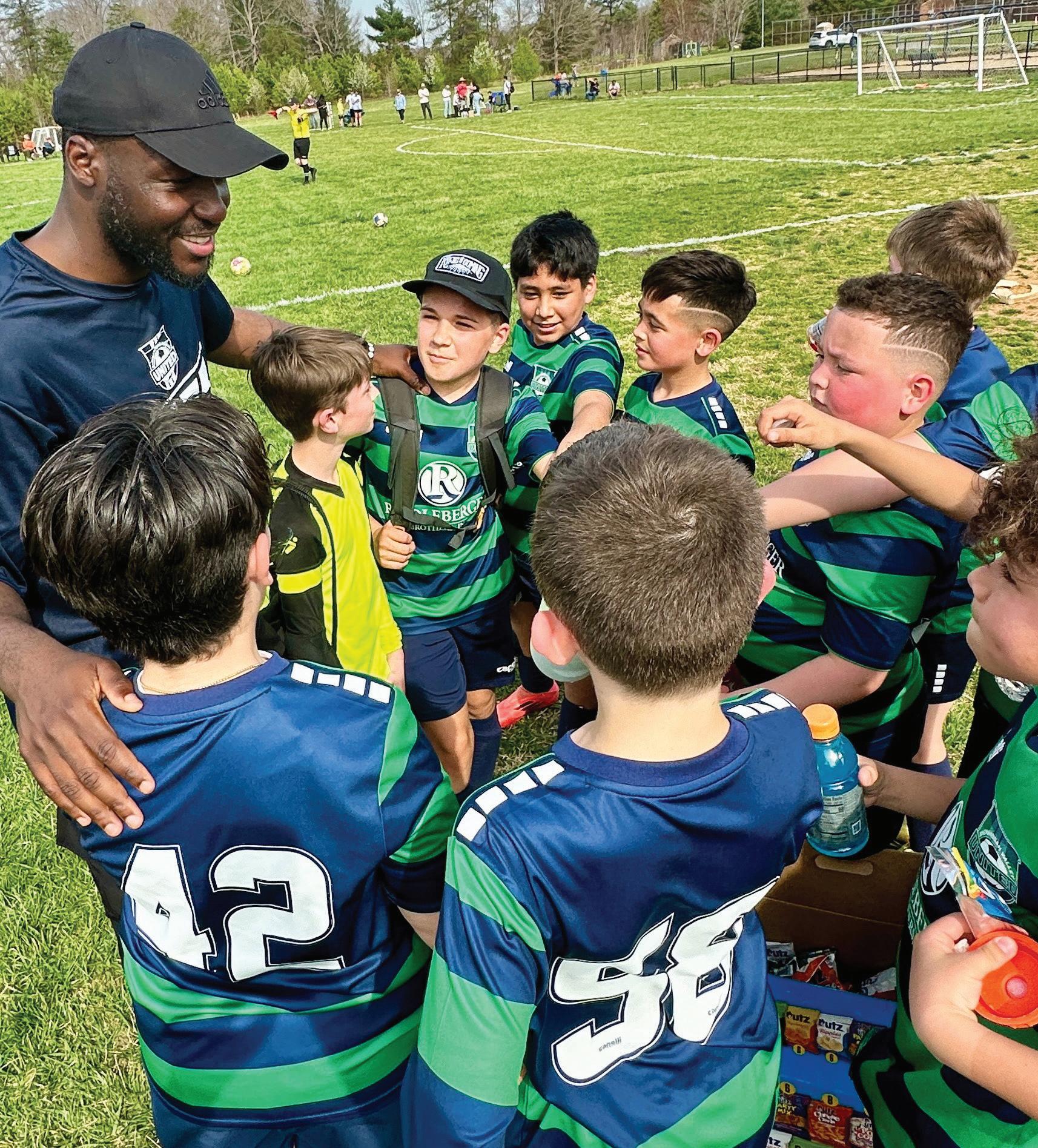




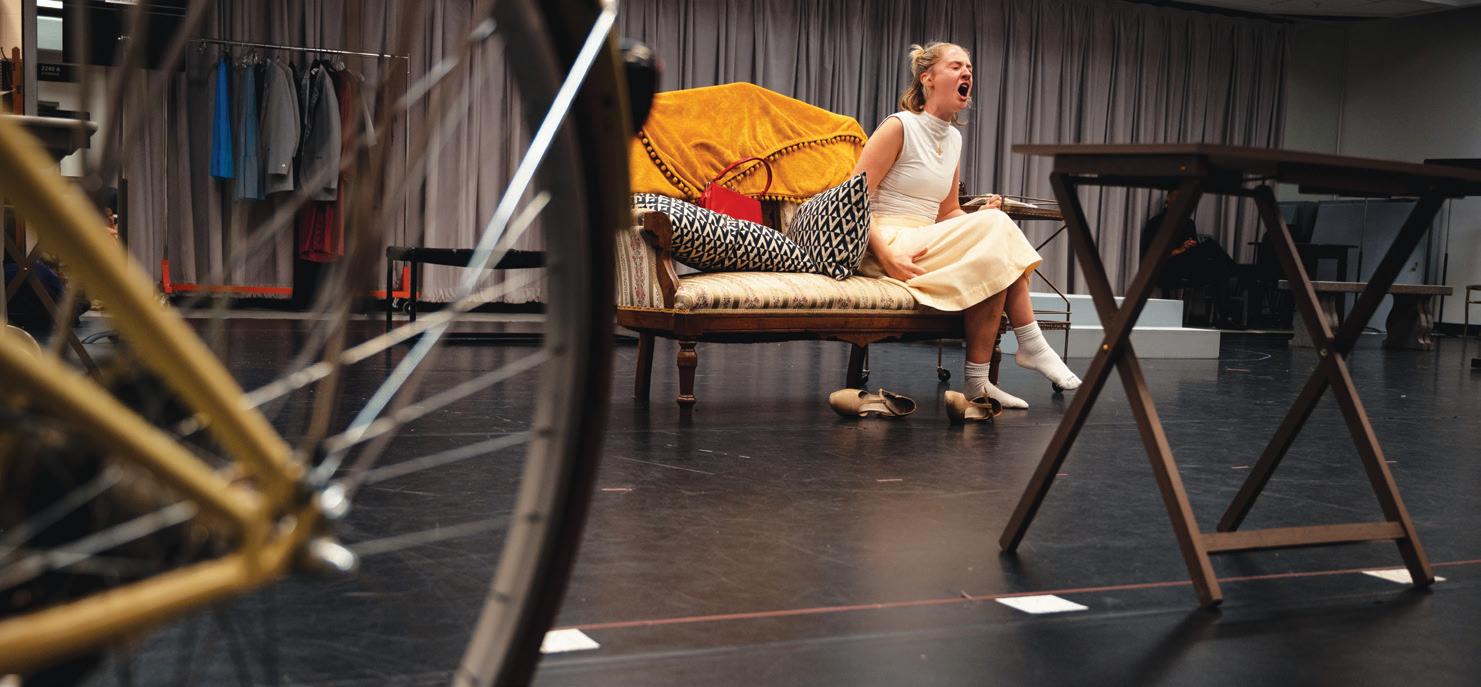
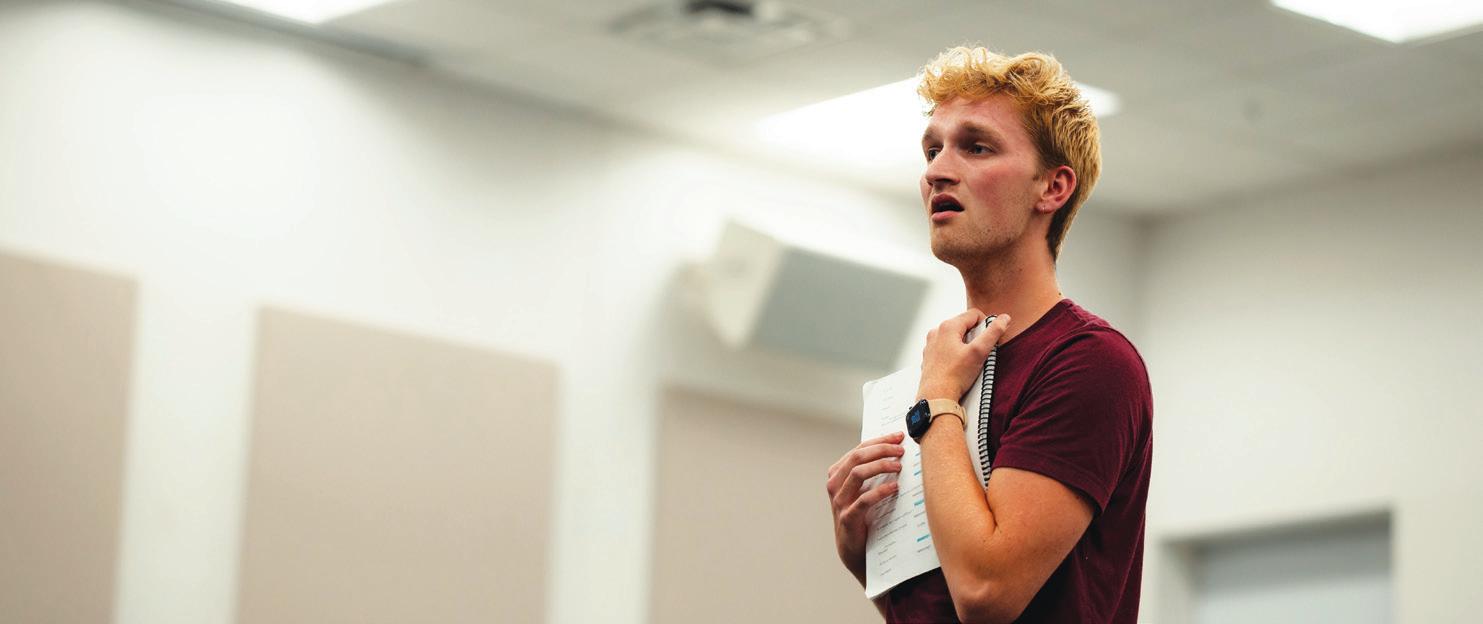
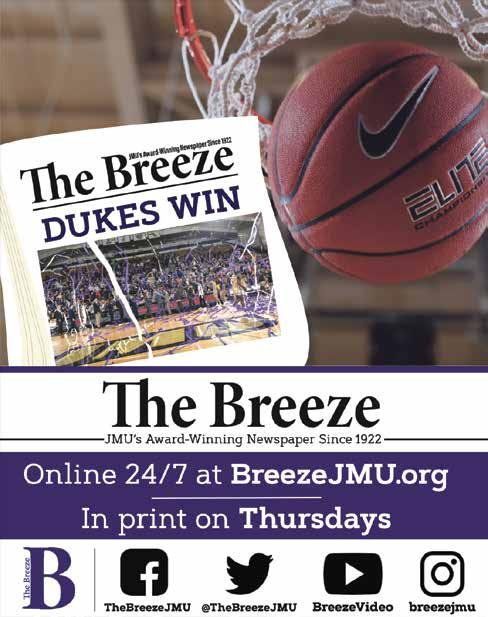

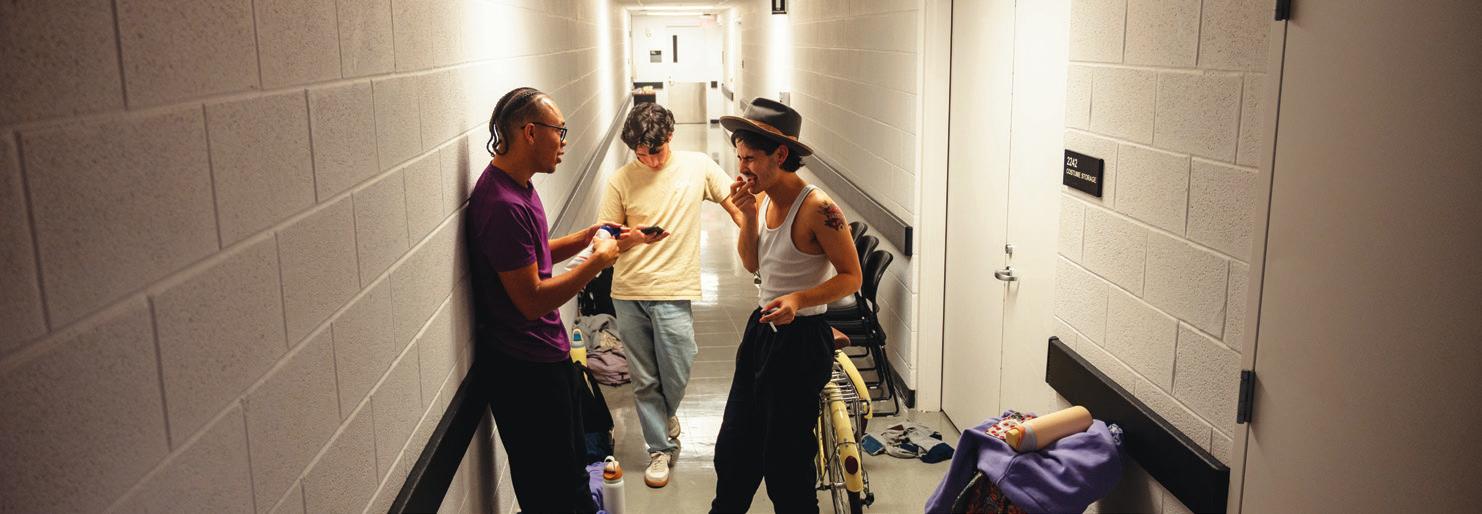
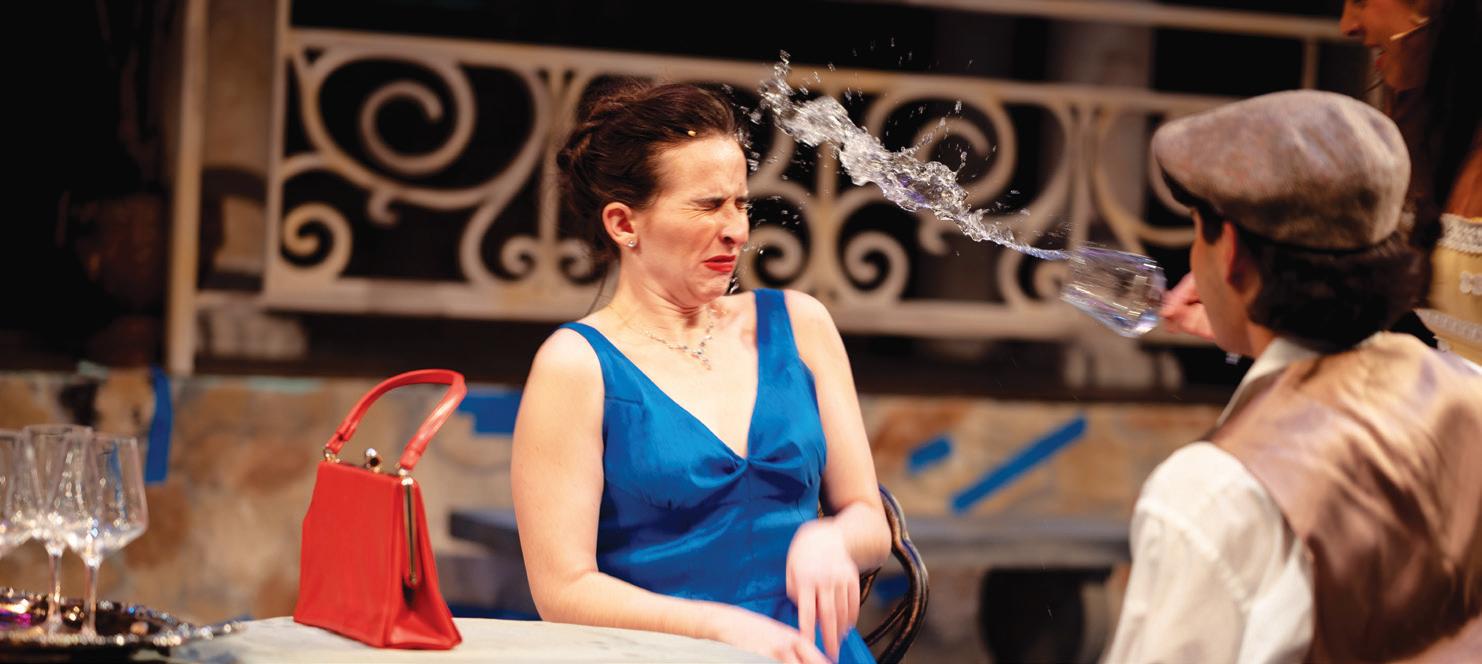
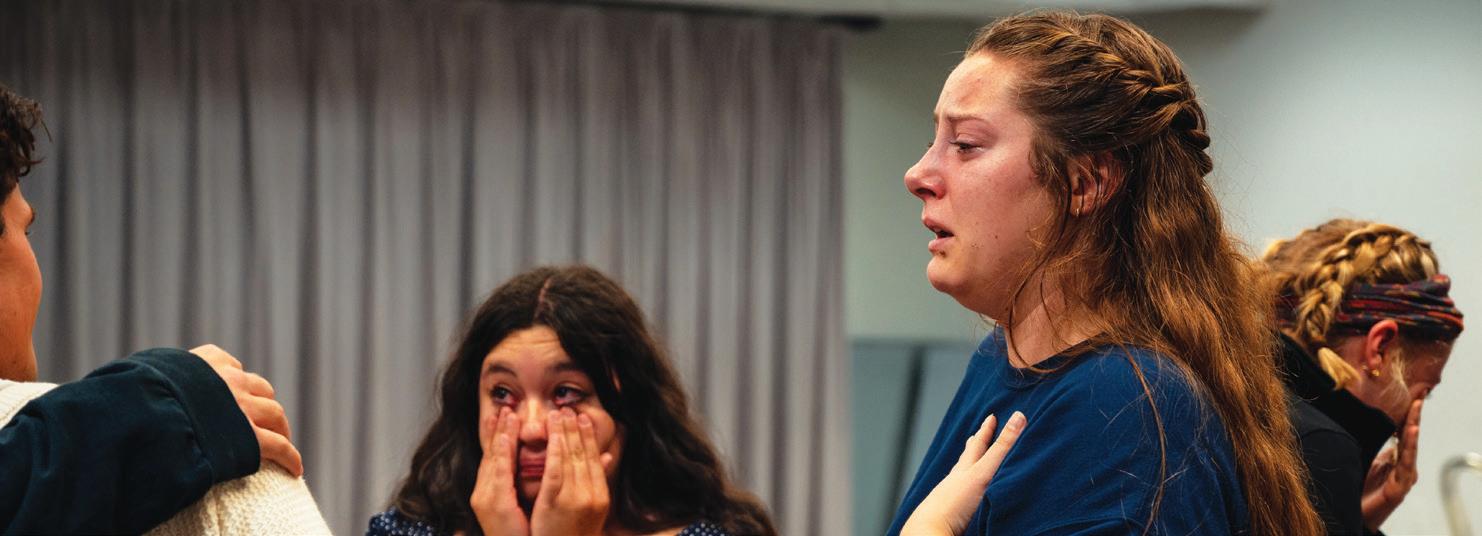

EDITORS Preston Comer & Gavin Avella EMAIL breezesports@gmail.com
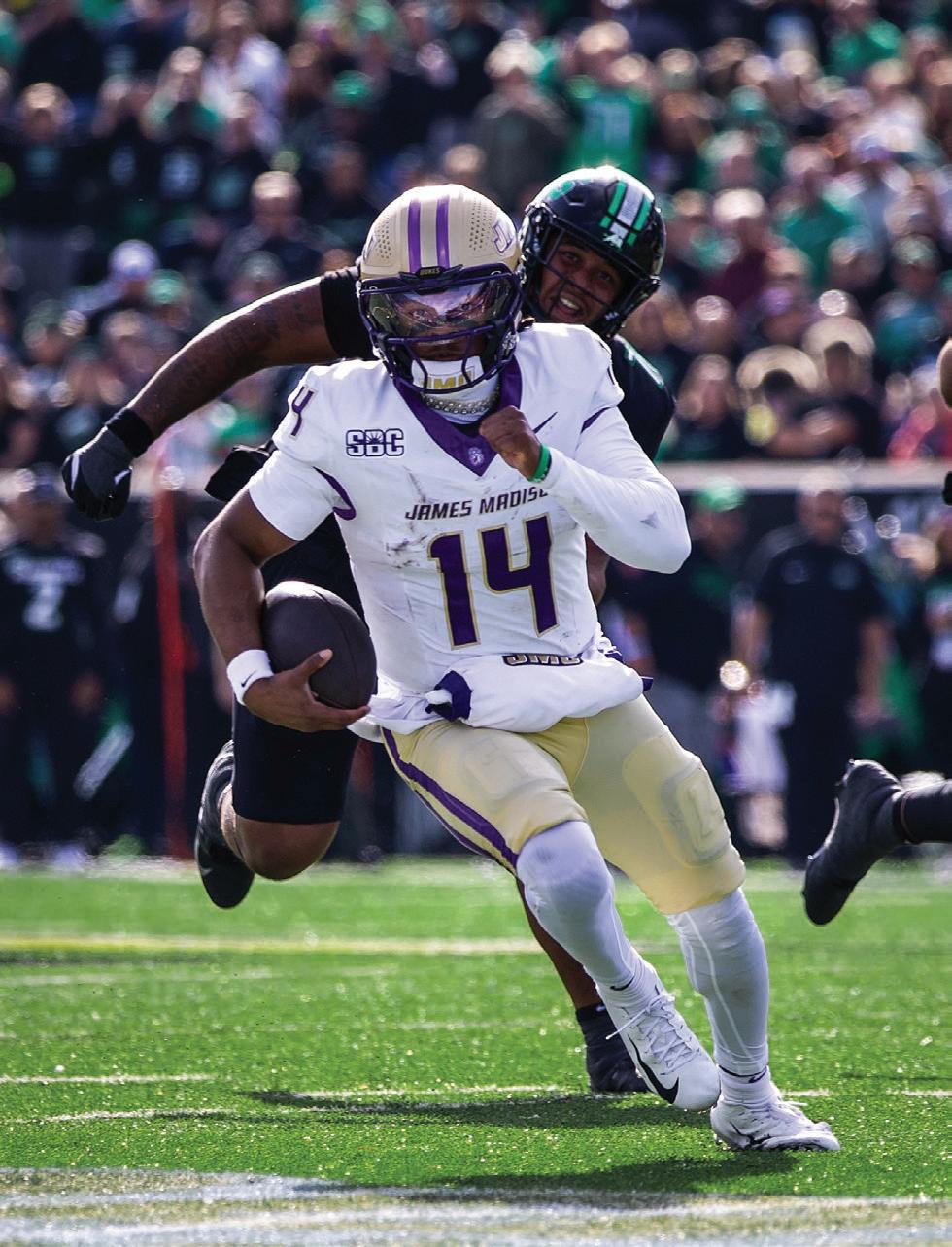

By GAVIN AVELLA
The Breeze
JMU football (8-1, 6-0 Sun Belt) returns home to Bridgeforth Stadium for the first time in almost a month after a hardfought victory over Marshall this past weekend. It will look to remain perfect in conference play with its eighth-straight win — seventh in conference — against a familiar foe in App State (4-5, 1-4 Sun Belt).
If you’re just looking at the record and final score of 2025 contests, it may seem as if handling App State should be a relatively easy task for JMU, but when you consider the recent history of this developing rivalry, that couldn’t be further from the truth.
With their 4-5 overall record, 1-4 in Sun Belt play, the Mountaineers don’t exactly scream formidable Group of Five powerhouse like they once were, but that doesn’t tell the entire tale of the tape.
“Man, they’re good,” head coach Bob Chesney said. “They lost their last three games by one score, right? So that’s pretty telling of who they are, they’ve come back in the second half and battled a lot.”
App State began its 2025 season on a high note, triumphing over Charlotte in its season opener 34-11, and then returning home to Boone for its home opener, a contest in which it narrowly won 20-13 over FCS foe Lindenwood.
However, it was really downhill from here for the Mountaineers, losing five of their next seven contests, four of those being critical conference matchups.
While the Mountaineers are all but out of the race for a Sun Belt East title and conference championship game berth, they’re in a position to do what they have arguably done better than anything in the past few seasons: play spoiler to JMU’s party.
Since JMU joined the Sun Belt in 2022, the Mountaineers have held a 2-1 edge over the Dukes, which includes a 34-20 win in Boone a season ago, and a rather heartbreaking 26-23 victory in Harrisonburg when ESPN’s College GameDay was in town to spoil JMU’s unbeaten season.
With Saturday marking the 20th all-time meeting between the teams, App State leads the all-time series, 14-5. In short,
the Mountaineers historically have the Dukes’ number when it matters most.
However, something will have to give this Saturday, and if JMU football has proved anything this season, it's that it can and will buckle down and come away with a win when the going gets tough.
Much like its record, App State’s offense doesn’t exactly jump off the page as an extremely efficient and formidable threat, averaging 26.6 points per game, good for 76th out of 136 eligible FBS programs, but they’re more than capable of putting points on the board and causing opposing defenses trouble.
“Another really dangerous offense, a running back that leads the league in yards, and a quarterback that’s been through a lot this season, but man, when he needs it, he puts up yards, and they complete a lot of passes, and they’re definitely a threat to attack you over the top or intermediate zones,” defensive coordinator Colin Hitschler said.
The quarterback in question is former Vanderbilt and LSU transfer redshirt junior AJ Swann, who has appeared in six of the Mountaineers’ nine games due to some injuries and has completed 122 of his 194 passing attempts for 1,431 yards, 10 touchdowns and seven interceptions through the air.
“The QB they’re putting in there right now does a really, really nice job, he is confident in there, he’s comfortable in the pocket, and his ability to throw the ball downfield and progress it downfield it’s just effortless,” Chesney said.
App State has also deployed redshirt sophomore JJ Kohl in Swann’s absence, who has filled in nicely for the former four star blue chip prospect when called upon, appearing in six games while playing meaningful snaps in four, completing 82 of his 142 passing attempts for 979 yards, eight touchdowns and two interceptions.
App State’s offense is spearheaded by senior running back Rashod Dubinion, who leads the Sun Belt in rushing, trailed just slightly by the Dukes’ very own Wayne Knight, carrying the ball 150 times for 796 yards and four touchdowns on the ground.
The Mountaineers’ offense certainly runs through Dubinion, literally and metaphorically, but their other focal point is undoubtedly junior wide receiver Jaden Barnes.
“Number 15 has just been going off lately,” Chesney said. “The Barnes kid is really, really good, targeted 20 times, I think last week, 160 yards receiving, returned a punt for a touchdown already this year, he just does a phenomenal job.”
Barnes, alongside Dubinion, has been the lifeblood of this App State offense, hauling in 54 passes for 605 yards and seven touchdowns through the air, while adding 16 punt returns for 154 yards and a touchdown on the season, highlighting his versatility.
“I think he’s a dynamic weapon used in a lot of different ways,” Hitschler said. “I think what makes him unique is he can push the ball down the field, he can stretch it vertically, but he’s also really dangerous with underneath stuff and screens and jet sweeps.”
Much like its record and its offense, the Mountaineers’ defense doesn’t necessarily seem like a top unit in the country. It allowed opposing offenses to average 27.3 points per game, good for 89th out of 136 eligible FBS programs. But it’s certainly a force to be reckoned with out on the field in between the hashmarks.
“Their defensive line is very good — they get after the quarterback,” Chesney said. “I don’t know if they lead the league in sacks, but it’s probably close — they are disruptive as can be.”
App State’s rushing defense will certainly look to give the Dukes’ potent rushing attack some problems, as the No. 39-ranked rushing defense in the country, allowing 131.8 yards per game on the ground.
“They’re good, they do a really good job from the rushing side of things, right?” offensive coordinator Dean Kennedy said. “I think their defensive line gets off the football, and I think they’re only letting up 110 yards per game on the ground, so I think they do a really good job in between the box.”
Senior wide receiver Jaylan Sanchez echoed the same sentiments as Chesney and Kennedy and said the Dukes will need to be prepared to minimize mistakes if they want to knock off their familiar foes, the Mountaineers, this weekend.
Read more online at breezejmu.org
CONTACT Gavin Avella at breezesports@gmail.com. For more football coverage, follow the sports desk on X and Instagram @TheBreezeSports.
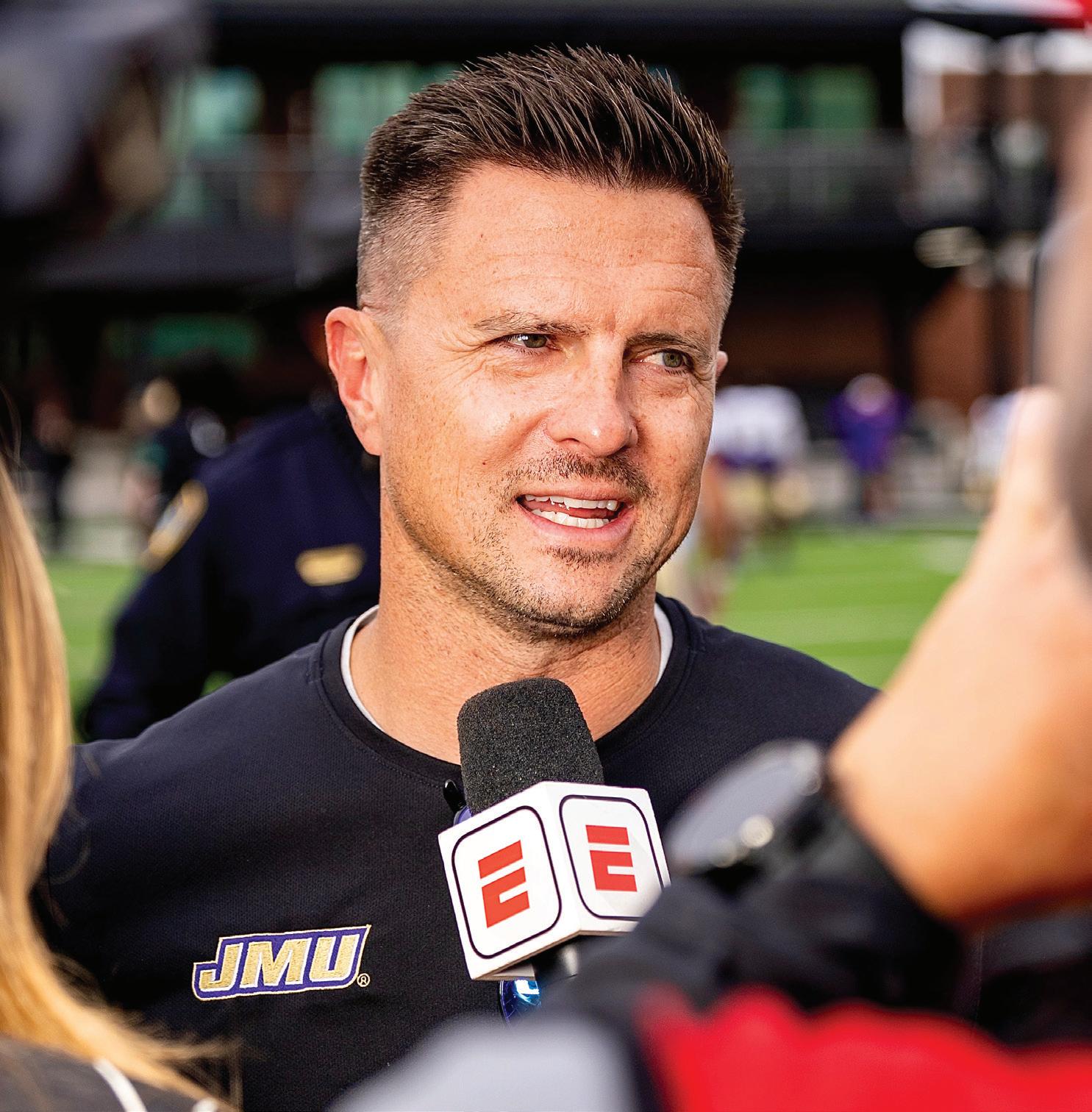
By PRESTON COMER The Breeze
JMU football (8-1, 6-0 Sun Belt) missed out on the College Football Playoff rankings for the second week in a row Tuesday night.
Instead of the Dukes, USF (7-2, 4-1 American) is the current Group of Five representative in the 12-team playoff, slotting in at No. 24 in Tuesday’s rankings. Selection committee chair Mack Rhoades said JMU was “certainly” a part of the conversation on Group of Five contenders.
“For James Madison, the part that was really hard to overcome for the committee was their schedule strength,” Rhoades said.
According to ESPN, the Dukes’ strength of schedule ranks No. 115 in the FBS, while USF ranks No. 54. ESPN’s All State Playoff Predictor gives JMU a 36% chance of making the playoffs while USF has a 40% chance.
JMU head coach Bob Chesney said he “used to believe you don’t talk about” postseason speculation, but the world of social media has changed the ability to duck those expectations.
“We’re trying to win games, stay focused and not worry about anything else,” Chesney said, “but these are things that are important for the community, and they’re important for the guys who got us here … it’d be foolish and unfair to just brush it under the rug and say it doesn’t exist because it does exist.”
Chesney said that conversations with his team revolve around what’s put them in position for a possible playoff spot.
“It all continues to go back to the same point of why are you in this conversation,
and why did you get to this point in time,” Chesney said.
What got JMU to that point? Chesney said it’s the Dukes’ ability to practice hard and succeed in pressure situations, and it’d be “ridiculous” to change their approach just because of a number next to their name.
“Let’s continue to do that, but at an even bigger level, or even a more elite level,” Chesney said. “Are we getting better each week? And that’s ultimately all that we can realistically control.”
Chesney also praised the community and supporters adding that the Dukes’ success is great for those, but JMU football are “still the ones doing the work, and the work still has to be done.”
“Numbers next to your name doesn’t just make people bow down when they walk in here, in fact it increases the bullseye,” Chesney said, “we have to understand and embrace that bullseye and understand our job is to still go out there and hunt, not be the hunted, and that’s exactly what we’ll continue to do.”
JMU will face App State 4-5 (1-4) on Saturday at 3:30 p.m. and Washington State on Nov. 22 at either 1 or 2 p.m. before closing its season out at Coastal Carolina on Nov. 29. The third week of College Football Playoff rankings will be released next Tuesday at 8:30 p.m. on ESPN.
CONTACT Preston Comer at breezesports@ gmail.com. For more football coverage, follow the sports desk on X and Instagram @TheBreezeSports.
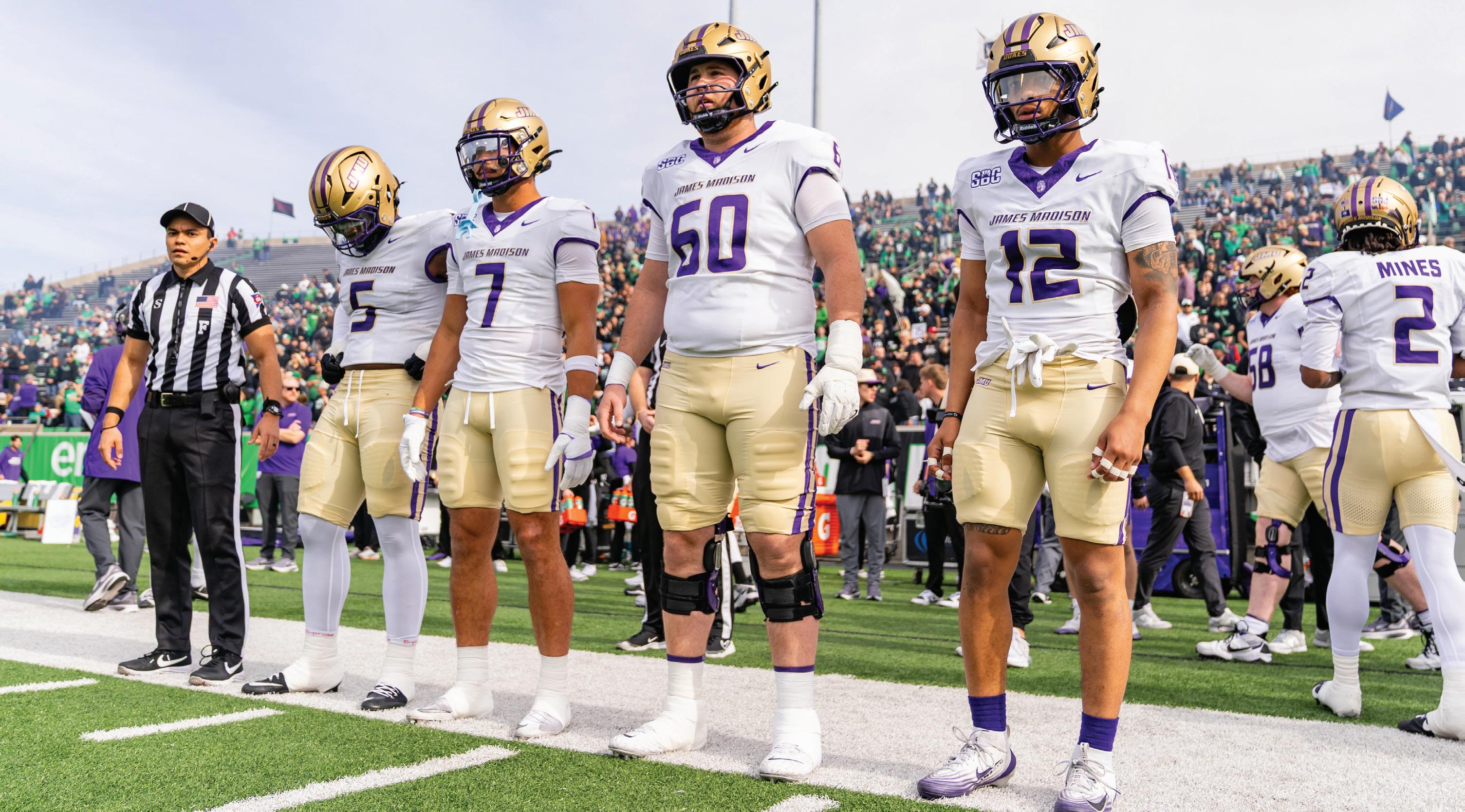


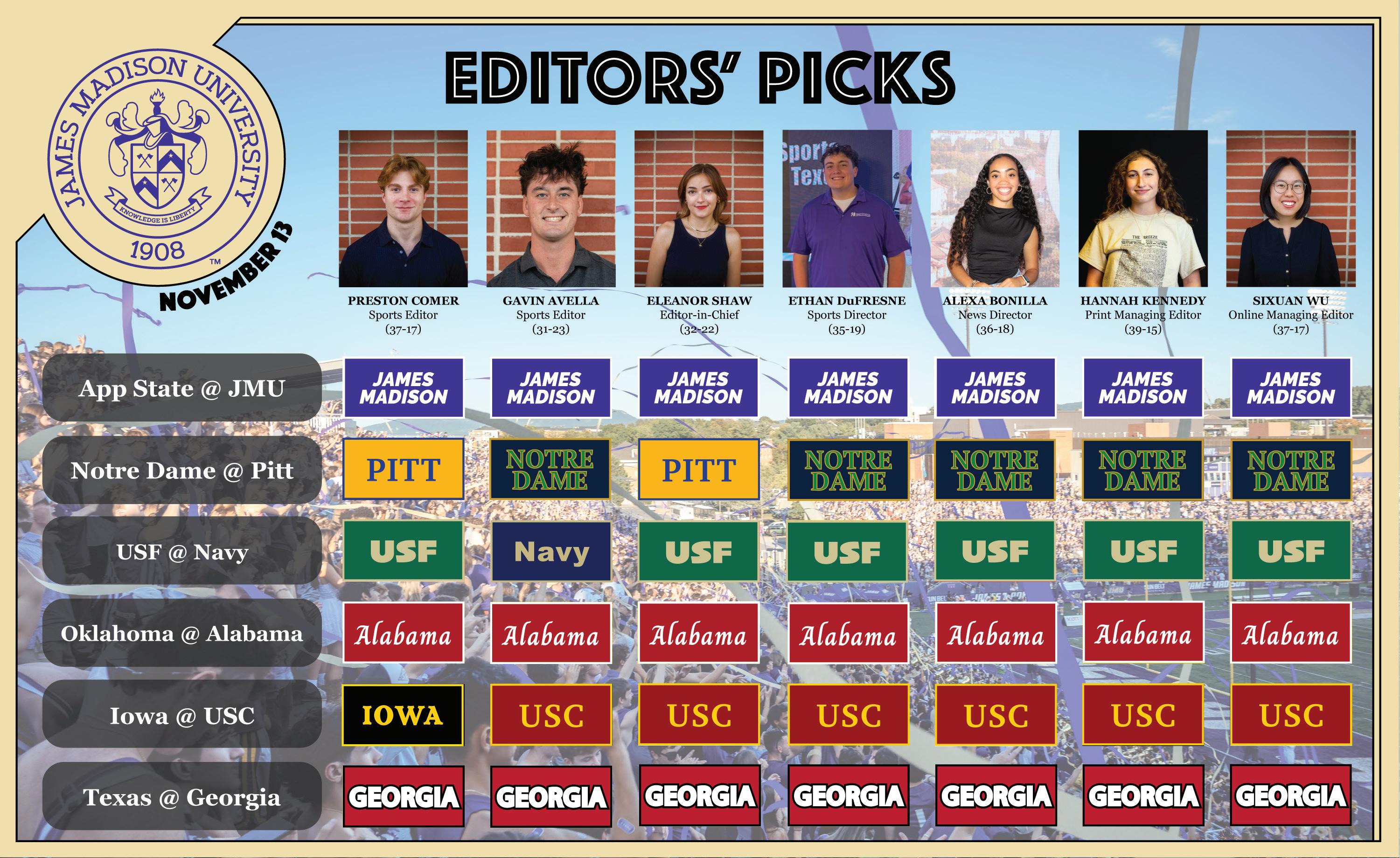




EDITOR EMAIL breezeopinion@gmail.com Caroline McKeown

Want to praise someone or get something off your chest? Darts & Pats is the place to do it. Submit your own at breezejmu.org.
A “light-at-the-end-of-thetunnel” pat to this semester.
From a student who was considering dropping out at the beginning of the semester.
BETHANY EARMAN contributing columnist
If I were to say the word “Google,” every single student on JMU’s campus would instinctively know I was referring either to the company itself, or the action of looking up something in the company’s web browser. While many know it’s a rich and powerful company, many don’t know the extent of its reach nor the strength of its grip on influencing every aspect of Western life.
Google has captured 89.73% of the market share as of 2024 — a near monopoly. This translates to 4.9 billion users and 13.6 billion searches daily. So naturally, Google is also a trillion dollar company, an amount so incredibly substantial that if you owned a trillion dollars and spent one million daily it would take you nearly 2,740 years to spend it all.
Needless to say Google is a titan of the tech industry, a dominance of power and most recently, a silencer of American voices. On Sept. 23, Google admitted to censorship while under investigation by the House Judiciary Committee.
justify this crime was they were stopping “misinformation,” according to a staff report published by the House of Representatives.
This is the age-old reasoning of the dictatorships and tyrannies across history to silence and control their people. Free speech doesn’t exist just for those who speak the truth. In fact, the only way we arrive at truth is through sharing, discussing and debating different opinions, — both credible and flawed. But it’s this open forum of speech that allows for any kind of freedom or democracy to exist. The American people must not take lightly what Google has done. Such an action should embolden us to further voice what we believe and think, lest it be slowly manipulated, quieted and at last taken away.
Free speech is a right many youth take for granted in the 21st century. However, this right wasn’t always assumed, but it was once a battle, only won through incredible persistence, strength and perseverance.
ever to make one’s voice heard. Coleman acknowledged that there are leaders who try to silence particular voices. They desire to keep people in the dark, oblivious to opposing views or information, so that their narrative is accepted as truth. While an extreme end, censorship like that of Google and the Biden administration was the stepping stone toward such an end.
America’s strength for so long has been its commitment to the right of free speech, and thus freedom of the press, and the right to vote. But Coleman warned, “There’s no time to rest now. We’ve got to be on our guard.”
A “girlboss-finally” pat to the new governor of Virginia.
From someone who’s starting to have faith in real government again.
A “stupid-a**-schedule” dart to the Thanksgiving to finals week schedule.
From a student who doesn’t get the weird week between finals and break.
Specifically in their letter, they confessed that former President Joe Biden’s administration “applied ‘repeated and sustained’ pressure on the company to silence his political opponents.”
Google had been accomplishing this injustice through banning YouTube accounts which voiced opinions about COVID-19 and also the integrity and reliability of the recent election. Those banned had never actually broken any rules. They simply were sharing a viewpoint that those in power, namely the man elected to represent and protect the American people felt threatened by.
And so Biden told an extremely influential company to quiet American voices. And they obeyed. The excuse that they whispered to
One of the key influences in this battle was Carolyn Quilloin Coleman, a civil rights leader most known for helping 18 year olds win the right to vote.
Coleman, along with two others, was among the first students arrested for sitin protests in Savannah, Georgia, leading activists to participate in an eight-month boycott of department stores. After high school, Coleman went on to lead the first major youth conference in Washington, D.C., ultimately lowering the voting age from 21 to 18.
Coleman underwent a tenuous period of stark political and social unrest, in some ways quite similar to the political climate of today. She believed that during times of injustice or division, it’s more important than
The battle is far from over. Google didn’t admit it was wrong. Nowhere in its letter did Google say that the censorship of the American people or extreme bias to push one political agenda forward and hide the other was wrong. Yet, Google has been found guilty of manipulating its content past just YouTube. Google buried President Donald Trump’s campaign website for the 2024 presidential campaign, purposely shoving right-leaning sites down in its search results, and “even directed users to Kamala Harris’ campaign website when they were actually searching other candidates” according to the New York Post.
Google also hasn’t promised to reinstate free speech, but rather, “free expression,” a purposeful choice of words.
A “stub-your-toe” dart to all the people who raced to get those Starbucks bear cups.
From someone who thought it was cute but didn’t.

Policies
In a New York Post article, Dan Schneider, the vice president for free speech at the Media Research Center says, “Free speech is constitutional language, the First Amendment’s core. ‘Expression’ is corporate jargon. Google allows you to speak — but reserves the right to bury what you say. What appears as generosity is simply power cloaked in euphemism. In fact, Google’s only reference to the First Amendment relates to its own twisted logic offered repeatedly in court, that it has a Constitutional right to censor the speech of others.”
We must not become numb to these privileges and rights, nor remain quiet when they’re violated. Like Coleman, we must fight for our freedom of speech, for as Coleman states, “If we lose democracy in this country, we lose it in the whole world.”
Similarly, if we keep silent over what Google and our government have dared to do, then we risk repeating such injustice in the future. Only then, we may not be as lucky as this time; we cannot be sure they will be caught.
CONTACT Bethany Earman at earmanbg@dukes.jmu.edu. For more editorials regarding the JMU and Harrisonburg communities, follow the opinion desk on X @TheBreezeJMU and on Instagram @BreezeJMU.
COLIN EYLER contributing columnist
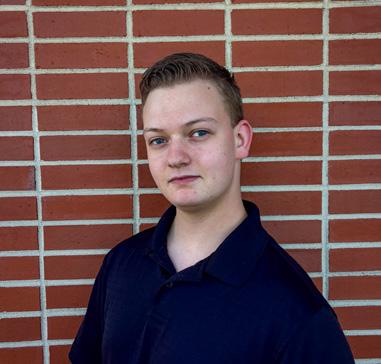
An economic exchanges in a market economy are guided by two core principles: Businesses will attempt to maximize profits, and consumers will attempt to maximize utility gain — that is, the satisfaction a consumer gets from a purchase. Because of these two principles, a federal living wage — although noble — is economically unwise.
Although the idea of a living wage has existed for some time, numerous proposals over the past decade have ignored economic realities, pushing for wage floors that would be detrimental to the American public. Ultimately, this would lead to the disemployment and unemployment of millions and, as a result of the regulatory actions that would be required, less affordable living. Even after ignoring the numerous logistical problems of implementing a living wage, insurmountable barriers prevent any sort of positive difference being made by a federal living wage.
When the price of labor increases, the price of production increases. This means that, when wages rise, businesses are left with two choices to stabilize their profit margins: Businesses may either increase prices, leading to high inflation, or they may reduce the cost of labor by disemploying laborers or automating positions until their profit margin returns.
A number of studies, including one by the Congressional Budget Office, state that raising the minimum wage on a gradual scale would lead to an increased national deficit, higher prices for goods and services, increased federal spending and the unemployment of 1.4 million workers (although the number of people in poverty would decrease, even if by a significantly lesser number).
Even if we were to assume that this decades-old theory is wrong, and that businesses would opt to indefinitely absorb the costs of paying workers more, the toll imposed by a living wage would pose an existential threat to small businesses.
Ian MacLean, the 2020 chair of the U.S. Chamber of Commerce Small Business Counsel, said that for his small business: “If the lowest wage earners are increased to $15 per hour ... my employees currently making $15 per hour or more would, justifiably, want their hourly rates increased commensurate with their skills, experience, and tenure above the new $15
per hour employees. Wages make up 51% of our [c]ost [o]f [g]oods [s]old here at Highland Landscaping and hiking the minimum wage to $15 is a 36% increase. The effect of this ... means we are losing money at a gross margin level. That leaves not a single dollar to go towards overhead, much less any profit.”
The most common counterargument, highlighted by the Center for American Progress, is that higher minimum wages boost local spending, which in turn increases revenue for small businesses. However, according to the U.S. Chamber of Commerce, most small businesses operate in industries such as mining, transportation and construction — sectors that aren’t driven primarily by local consumer demand. As a result, the supposed spending surge would have little to no meaningful impact on their revenue, while the higher cost of labor would force them to fire employees or go out of business.
Aside from the unemployment effects of a higher minimum wage, although past changes to the minimum wage haven’t caused significant inflation, that would likely change with the implementation of a federal living wage.
According to Cooper et al. in a Federal Reserve Bank of Boston paper, “the effect of the minimum wage on the economy will be differentially (nonlinearly) larger when the size of the change in the minimum wage increases or the level of the minimum wage itself grows.” Dramatic inflation increases haven’t yet occurred due to minimum wage increases, that’s directly related to the fact that most of these changes aren’t relatively large. Ultimately, while admirable in theory, a living wage would lead to the same conditions we’re experiencing at present — if not worse. While the supermajority of literature regarding a living wage claims that effects on small businesses and inflation would be minimal, the fact that research supports the opposite should be alarming for anyone who supports a federal living wage. The impacts that a living wage may cause on employment and inflation should outright concern, if not discourage, policymakers.
CONTACT Collin Eyler at eylercj@ dukes.jmu.edu. For more editorials regarding the JMU and Harrisonburg communities, follow the opinion desk on X @TheBreezeJMU and on Instagram @BreezeJMU.

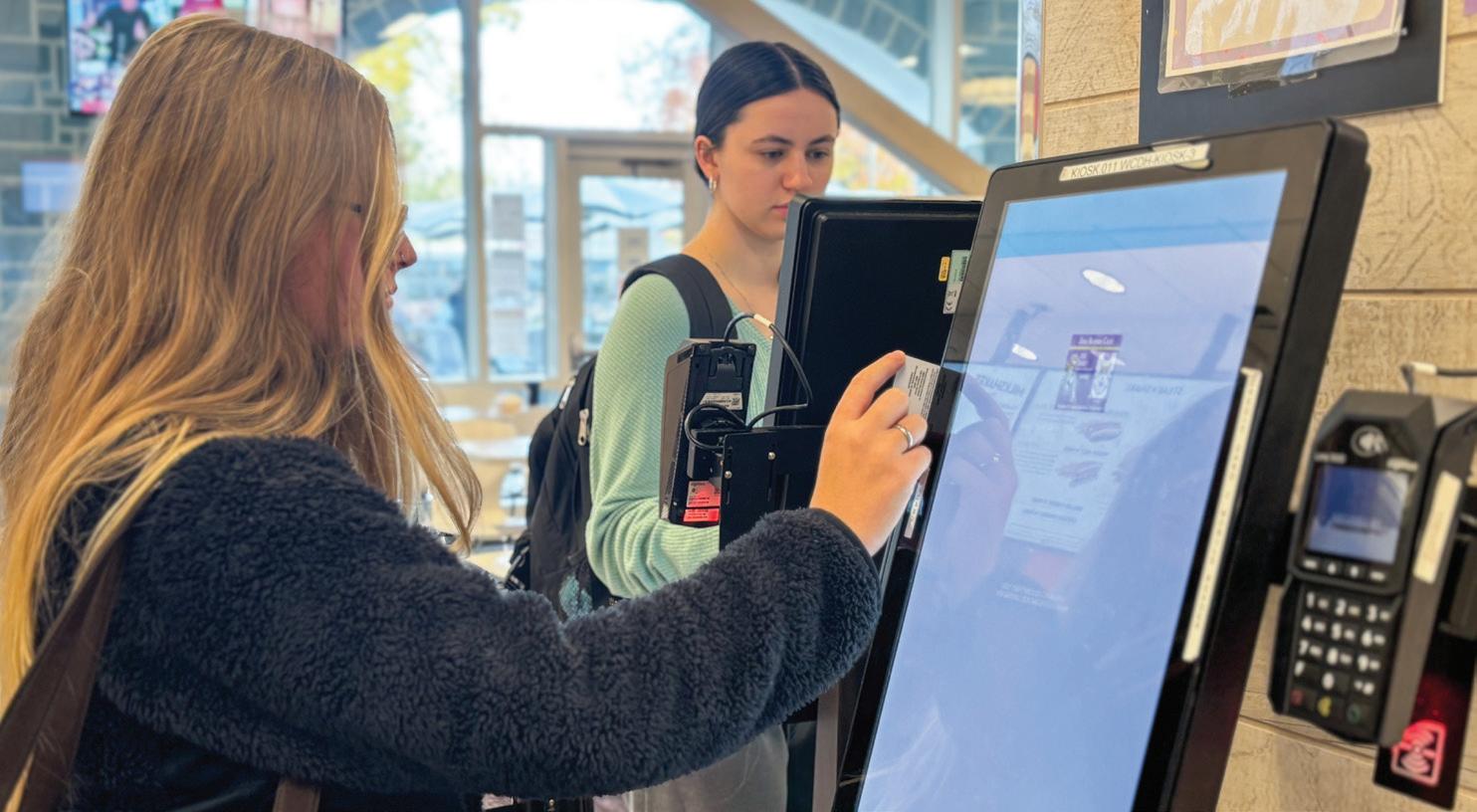

One of the first things students learn at JMU is just how seamlessly meal plans can fit within college life. Dining halls become the setting for long conversations and slow afternoons. People drift in without any particular intention, and most don’t think twice about when or where they’ll eat. A meal plan fits naturally into that environment, with many relying on unlimited All-Access swipes.
Many commuters continue to purchase meal plans for sheer convenience and the incentive of value, even when the rhythm changes when they move off campus. Grocery shopping becomes part of the regular schedule. Breakfast occurs prior to heading out. Lunch is often something that is packed, quick or eaten before work. The dining hall is now optional, no longer automatic.
The expectation of a meal plan follows them from their freshman year, along with the notion that most students have one. Often, the choice stems from familiarity rather than full reflection, even when the conditions that justify a meal plan no longer exist.
Discourse around the JMU meal plans have long circulated among students. Many struggle with justifying the value of punches, and this is yet another occurrence of a pricing gap that doesn’t match with value.
The numbers make this clear. For example, the JMU website lists that the 75 Block commuter plan with $300 Dining Dollars costs $1,489 per semester. Even if every punch is used, the plan comes out to about $19.85 per meal, which is already higher than the current $18.20 dining hall door rate for lunch or dinner (rising to $18.53 next year).
But often commuters don’t use all 75 swipes. A student eating on campus around four times a week could use roughly 60 meals across the semester, which raises the real cost to about $24.80 per meal. In that case, the meal plan becomes much more expensive than simply paying at the door.
Commuters experience the university differently. Many are only on campus for class and then leave, coming in from areas all around Harrisonburg and back home at the end of the day. They manage intern programs, jobs elsewhere, rehearsals for performances or late-night studying in another location.
Commuters’ time on campus is often irregular, and so too are their meals. Sometimes meals occur on campus, but for many, most meals do not.
A meal plan, however, assumes consistency. It’s priced with the assumption that it will be used on a regular basis. If students stop eating campus meals on a daily basis, then this plan is no longer cost-efficient. It’s merely an expense waiting to be used.
With all plans costing over 1,000 dollars, the cost per meal rises quickly once swipes go unused. Illness, weather, tight planning, long work shifts or weekends away reduce usage even further.
The result is spending on convenience that doesn’t align with the lived routine, not simply overspending.
Some commuters find that a different approach works better. Setting aside a designated amount of money in a separate account for the semester creates the same sense of having food “covered,” while not having the limitations of a meal plan. That money can go toward groceries, on-campus meals when needed — which are cheaper than punches collectively — or takeout after long days. It adjusts to each week instead of requiring each week to align with a fixed pattern.
If a student has more time one week, they can cook and spend less; if the next week is busier, they can use the money for on-campus meals instead. If some of their allocated budget remains at the end of the semester, it stays with the student instead of expiring like punches.
This doesn’t mean that meal plans have no place. Students who spend most of their day on campus, have tight academic blocks or rely on structured eating times may find meal plans stabilizing. Dining halls offer predictability, which supports some students’ personal organization.
The issue isn’t the existence of meal plans. The issue is treating them as the default or having more “bang for one’s buck.”
A more transparent conversation about meal plans would help commuters evaluate them based on their actual schedules. JMU dining staff could provide online cost-permeal guidance based on use, helping students make informed decisions. Acknowledging that routines shift after freshman year would reduce pressure to maintain a dining habit that no longer fits.
Meal plans are one option. For many commuters, flexibility works better.
CONTACT Elana Leichty at leichtek@ dukes.jmu.edu. For more editorials regarding the JMU and Harrisonburg communities, follow the opinion desk on X @TheBreezeJMU and on Instagram @ BreezeJMU.



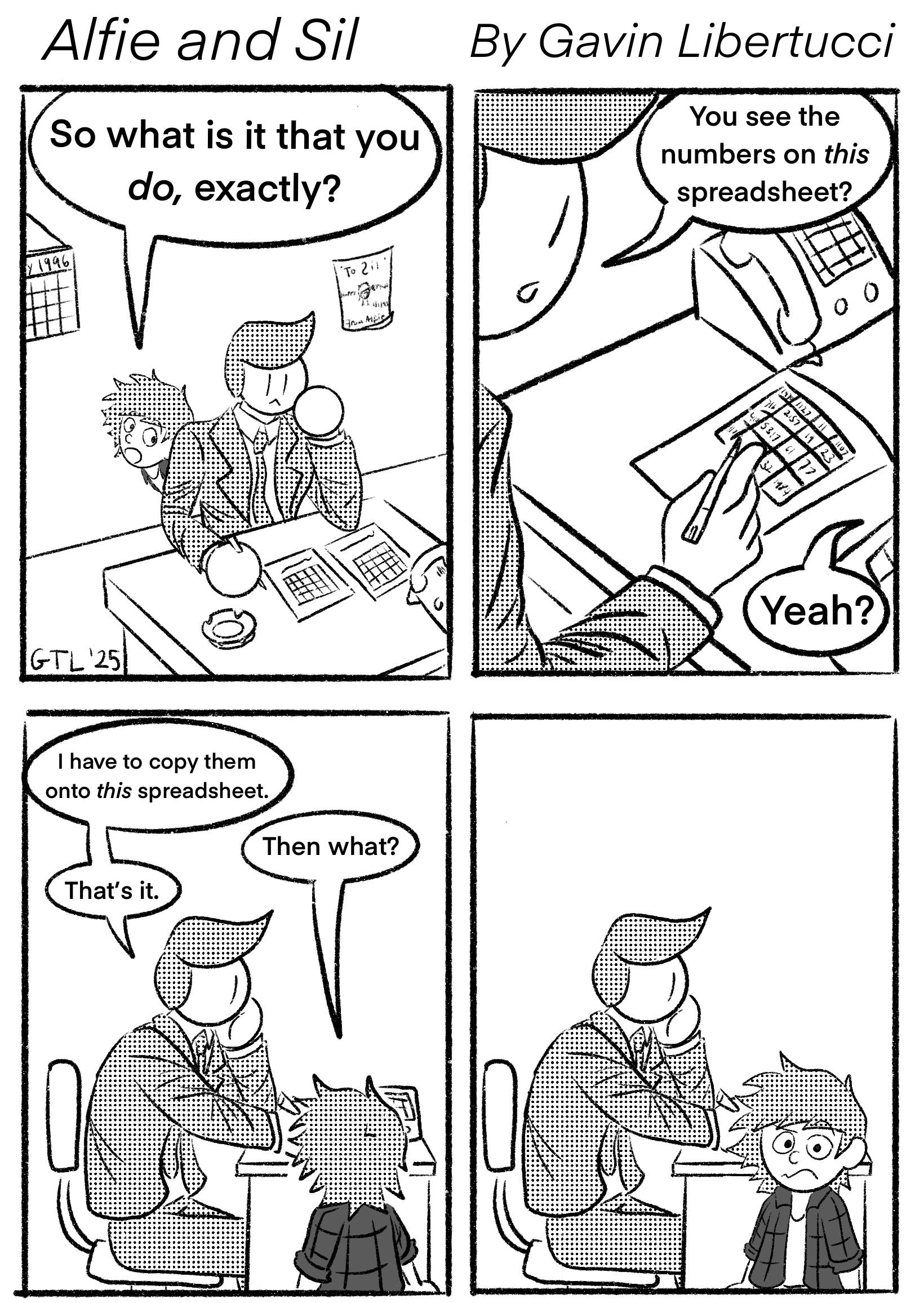
EDITOR-IN-CHIEF Eleanor Shaw breezeeditor@gmail.com
NEWS EDITORS Emma Notarnicola & Landon Shackelford breezenews@gmail.com
COPY EDITORS Kayla Katounas & Joelle McKenzie breezecopy@gmail.com
PRINT MANAGING EDITOR Hannah Kennedy breezepress@gmail.com
CULTURE EDITORS Isabel Lewis & Charlie Bodenstein thebreezeculture@gmail.com
PHOTO EDITORS Kailey Garner & Annabel Dewey breezephotography@gmail.com
ONLINE MANAGING EDITOR Sixuan Wu thebreezeweb@gmail.com
SPORTS EDITORS Preston Comer & Gavin Avella breezesports@gmail.com
AUDIENCE EDITORS Ella Warren & Madeline Buynak thebreezesocials@gmail.com

S.
St. Harrisonburg, VA 22801 PHONE: (540) 568-6127 FAX: (540) 568-7889
OPINION EDITOR Caroline McKeown breezeopinion@gmail.com
ART DIRECTOR Julia Tanner thebreezeartdirector@gmail.com
TV NEWS DIRECTOR Alexa Bonilla jmubreezetv@gmail.com

“Country, Country” by HARDY
“Man I Need” by Olivia Dean
“Irreplaceable” by Beyoncé
“TUNNEL VISION” by ITZY

“Butterflies” by Kacey Musgraves
“U Matter” by Jordan James
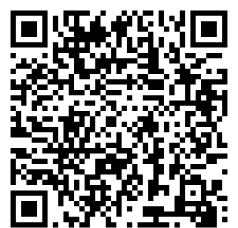
If you have any corrections, please contact the section editors via their designated email or the editor-in-chief at breezeeditor@gmail.com.

Los Angeles Times Daily Crossword Puzzle Edited by Patti Varol
small carpet
“Cool!”
St. Louis landmark
Player’s set of cards
Peter of “The Maltese Falcon”
Spotlight moment in a concert
Radio, TV, newspapers, etc.
Tapioca source
Athletic gp. for the Blue Devils
Egg cells
“That is perfect!”
Place for a “No Trespassing” sign
Move to a different folder, e.g.
Schoolyard game
Suffix with percent
By Michael Hobin
Last Supper question from Judas
Beards similar to Vandykes
William S. Burroughs work
Number of players in Connect Four
Virtuous
Partake of
Unexpectedly enlightening, and what can be found at the starts of 17-, 24-, 38-, and 49-Across
Large member of the violin family
Dollop
Swollen mark
Swap
Email folder
Throat-clearing




Madison Marketplace is open for business, and all text-only listings are FREE ! Post job listings, announcements, rentals and more using our online placement tool. Ads run two weeks online and in two print editions.
1 bedroom 1 bath Apartment located at Sherwood Apartments on Robbin Hood Ct in Harrisonburg. Rent $950, W/S/T included. Washer and Dryer in the unit along with a full kitchen and all appliances. Available December 2025. Inquiries please email klinemaint@comcast. net or by phone 540-833-6104

Are you ready to be the driving force behind cutting-edge public safety technology? Join the Harrisonburg-Rockingham Emergency Communications Center’s team as a Software Portfolio Specialist and help shape the future of emergency communications in a high-impact, mission-driven environment. Find out more/apply online: https://www.harrisonburgva. gov/employment.EOE.
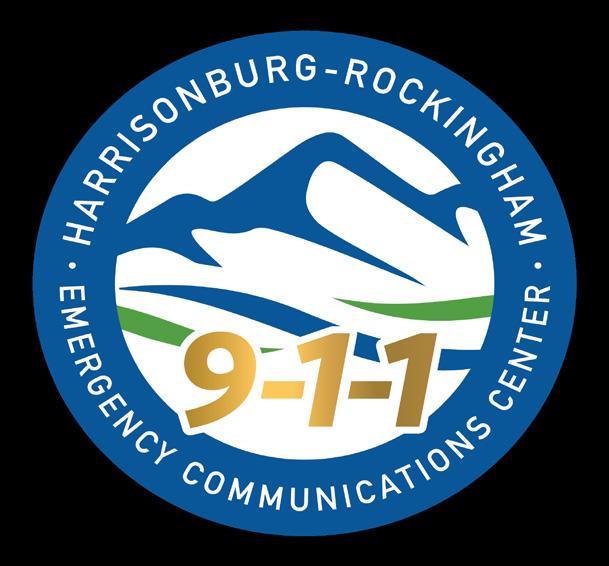
1 Bedroom 1 bath Apartment down town Harrisonburg available January 2026. All utilities included . $1050 a month. email for information klinemaint@comcast.net or 540833-6104

Transportation Services Airport transfers, wine tours, special events Motorcoach trip to Liberty football game Sept 20 Contact Adventures-N-Travel.com Call or text 540-810-1196 mikepackett@aol.com

Career Opportunity - Police Recruit
The City of Harrisonburg is currently accepting applications for noncertified individuals interested in joining the Harrisonburg Police Department, which offers a rewarding career plus an excellent benefits package, including enhanced hazardous duty through the Virginia Retirement System (VRS). Find out more/apply online: https://www.harrisonburgva.gov/ employment. EOE.

Part-time bartender no experience necessary will train must be 21. Apply in person at VFW 450 Waterman Dr Harrisonburg Va 22802 .
Internship Opportunity - City Manager’s Office (Harrisonburg, VA)
Are you a student seeking real-world experience in public administration with a locality recognized both regionally and nationally for a variety of achievements? If so, apply to the City of Harrisonburg’s City Manager’s Office Internship Opportunity! Find out more/apply online: https://www. harrisonburgva.gov/employment. EOE.
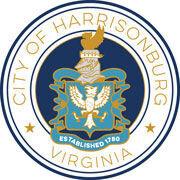
Missing Giraffe! Please Help!
This large concrete giraffe yard ornament was stolen from an elderly resident Aug. 22 on Port Hills Drive. It is a very sentimental gift and is 40 inches high. Please return to 1588 Port Hills Drive No questions asked. If you have seen it please call Andy at 757-592-2888

Game room
Large folding ping pong table with accessories. Foosball table with extras. Both in good condition. Must pick up, cash only $75 each. 540-578-2362
REAL ESTATE
Property for Sale in Staunton Building for Sale. Three store fronts. Two Apartments. Needs Total Renovation. 300 Central Ave., Staunton, VA 24401 $310,000 or best offer. Call 540-290-0375

O rd e r t o d a y a n d e n j o y !



